Ceiling in Hallway with Photo
After all, the type of ceiling will determine the overall look of the interior. In addition, there are now many diverse ideas for how to decorate a ceiling, allowing you to hide flaws, highlight the strengths of the room and visually enlarge it.
Ideas for Hallway Decoration
The first thing to consider is the interior style and design of the hallway, either existing or planned. Of course, one can opt for the simplest method of finishing, such as painting the ceiling white, but it's not that simple if you want to create a beautiful and modern design. You can highlight the main directions of finishing:
- The simplest option is minimalism, which is quite popular. Here, plastic panels can be used, which are not expensive, quick, and practical. They can help eliminate ceiling irregularities without additional renovation work.
- A more expensive and luxurious option is maximalism. This includes 3D effects, glossy surfaces, photo printing, and other possibilities. However, this style suits large hallways better as it would look inappropriate in small ones.
- Another option is to decorate the ceiling with lighting fixtures such as recessed lights or LED backlighting.
- Multi-level ceilings are also commonly used, installed using gypsum board structures, with many variations available.
You can view numerous examples of various ceiling design ideas through photos to better understand which option to choose.
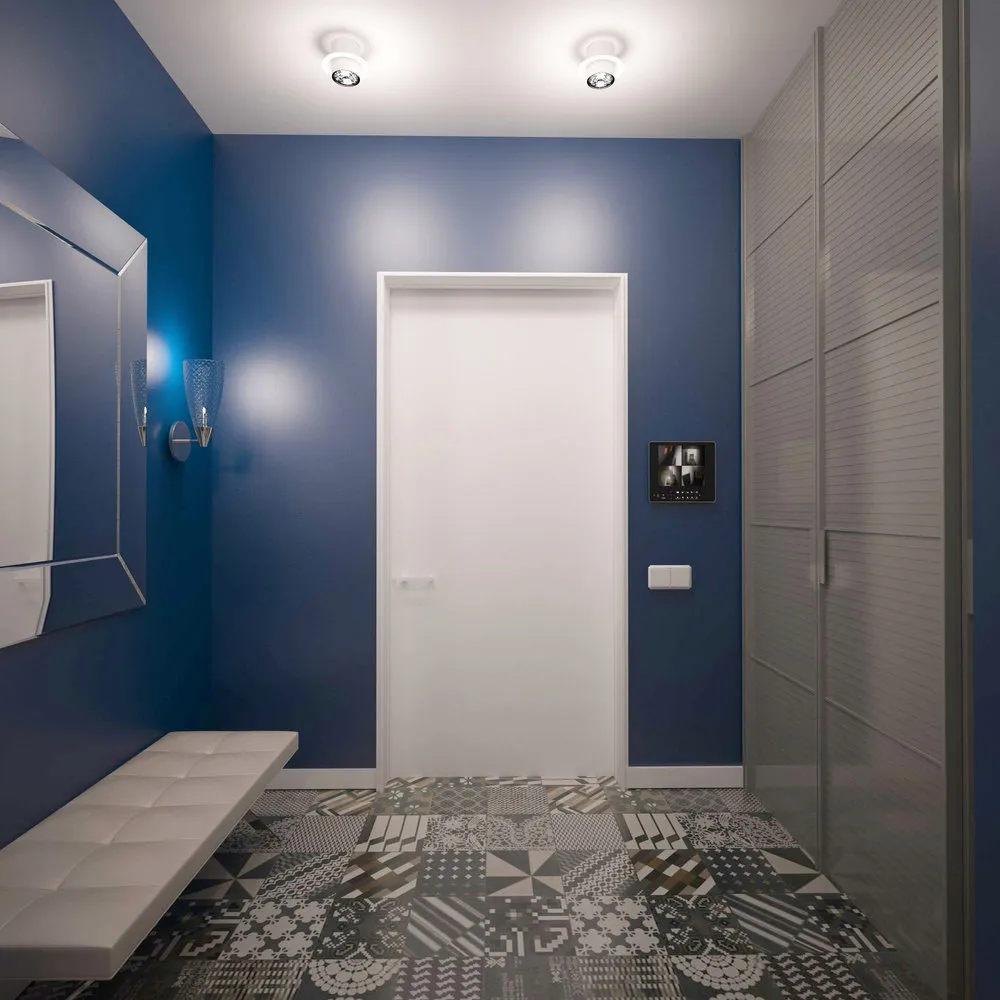
Design: Daria Dmitrieva
Types of Ceilings
In fact, the ceiling surface has many finishing options. Much of the choice depends on time and financial resources available. These may include:
- Painting;
- PVC panels;
- Wallpaper;
- Mirror tiles;
- Decorative plaster;
- Suspended ceilings;
- Gypsum board structures;
- Stretch ceilings.
Each type has its own characteristics and requires a preparation stage.
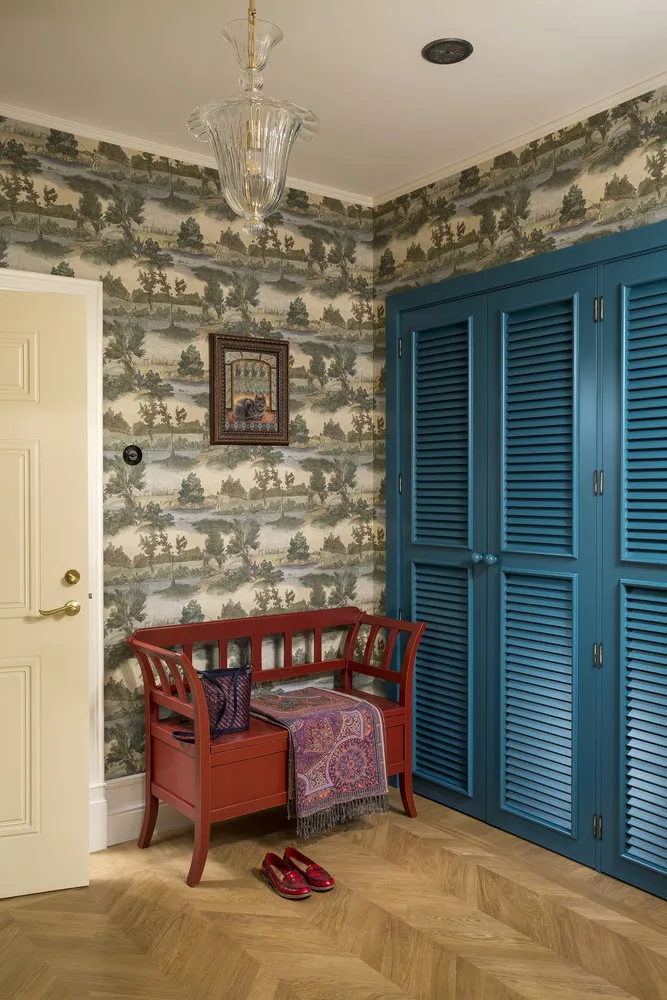
Design: Olesya Shlyakhtina
Guidelines for Selecting Materials and Structures for Ceiling Finishing
To make it easier to decide on the design of hallways' ceilings, it's important to know what materials will be needed, how heavy and time-consuming the finishing process is, and its specific features.
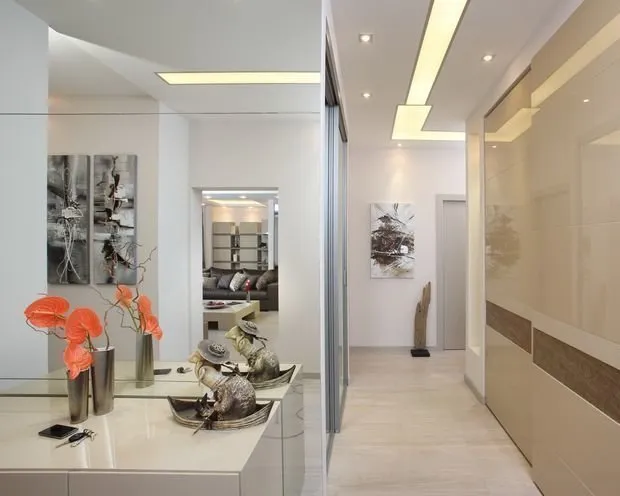
Painting the Ceiling Structure
There is a wide variety of ceiling paint available today, so there should be no issues with this. However, prior to painting the ceiling, the surface needs to be prepared. It should be flat, plastered, and primed. Paint should be applied in multiple layers, as defects will become visible after the first coat.
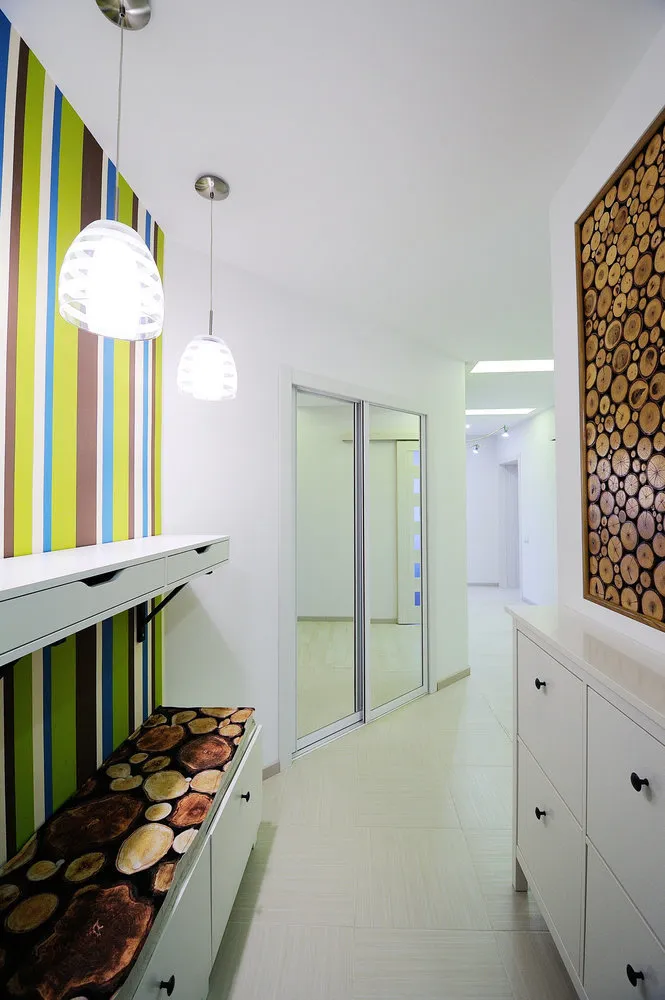
Plates as Decorative Elements
This is much simpler. Before installing the plates, no leveling or special preparation of the surface is required. There are various types of plates, such as PVC or mirror-surfaced ones. The latter should be used cautiously to avoid harming the overall design. They work well in small and dark hallways where more lighting is needed. These panels can be attached with glue or screws depending on the material used.
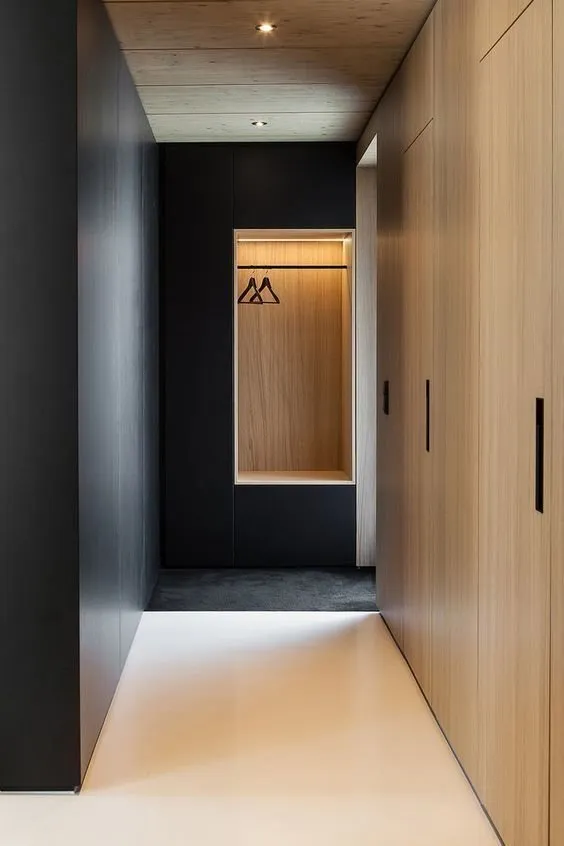
Tips from Nikita Morozov
Wallpaper in Ceiling Finishing
This is an older method of ceiling finishing, but it's making a comeback in modern apartment interiors. It's fast, convenient, practical, and offers a wide range of choices. For ceiling finishing, thick wallpapers or glass wallpapers designed for painting can be used.
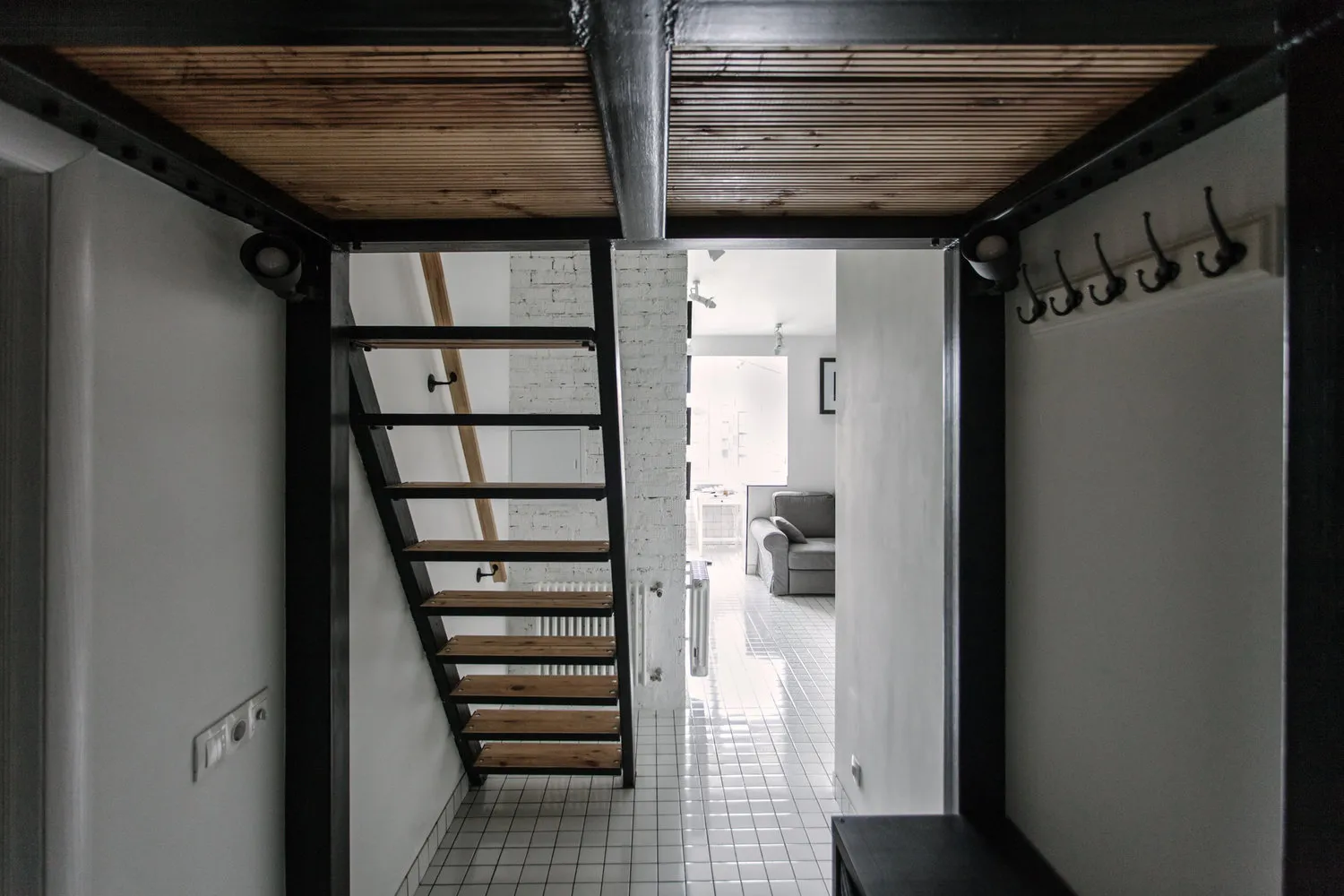
Decorative Plaster
A great option if you need to hide defects and unevenness of the ceiling. Additionally, it's a budget-friendly and simple method for ceiling finishing.
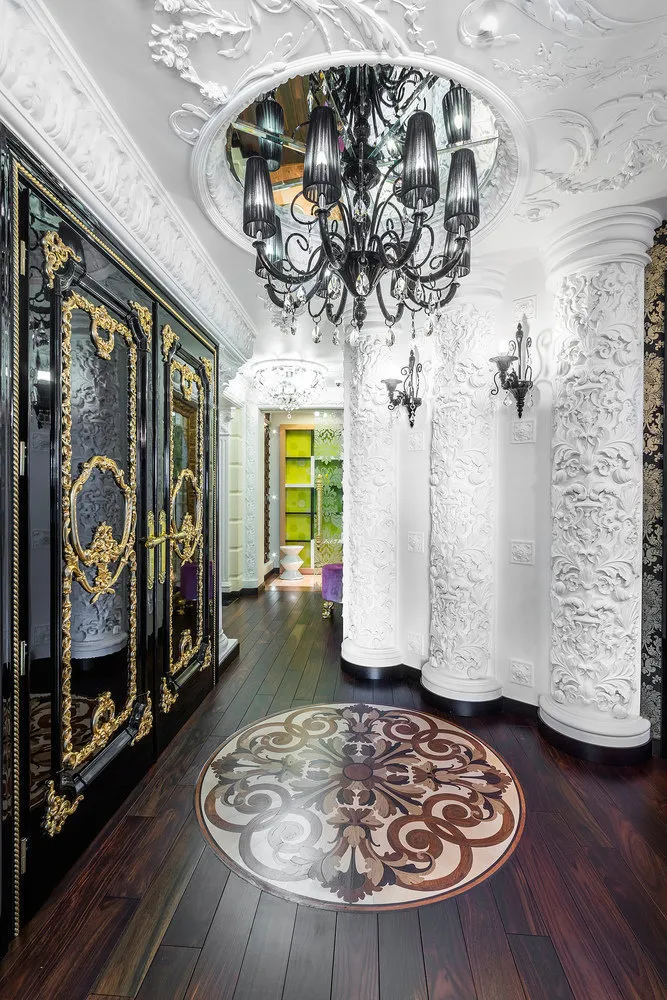
Stretch Ceilings
Probably the most popular way of finishing ceilings today. This popularity stems from its practicality and versatility. First, stretch ceilings can be installed on any surface, even one with significant irregularities and defects.
- Second, point lights can be installed on such ceilings, which can be adjusted for brightness. This is an excellent solution if the room is poorly lit, which is often the case.
- Third, modern design. There's a huge selection of color palettes, with matte or glossy surfaces that allow for creating a modern and stylish look.
- There are several types of stretch ceilings, which affects cost. Installation usually requires professional assistance.
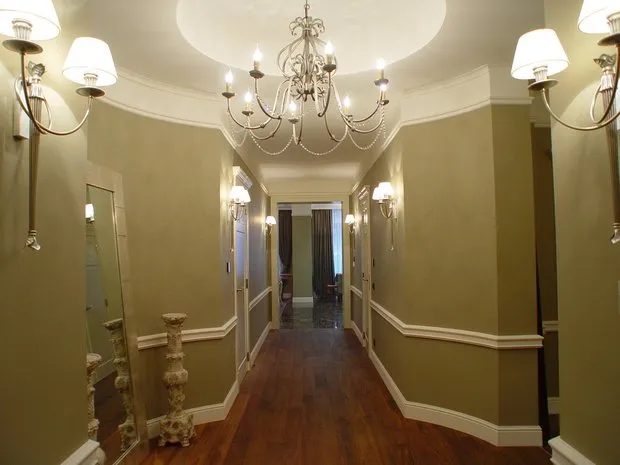
Suspended Structures
These can be gypsum board, tongue-and-groove, cassette structures with various designs, textures, and colors. They are very practical and durable, and also have a luxurious appearance. However, if talking about tongue-and-groove or cassette types, they are often perceived as office finishing, so homeowners sometimes avoid them for this reason. Gypsum board structures are used quite frequently, with their main advantage being various shapes, lines, and texture combinations.
- Gypsum board structures suit both large and small hallways, but proportions must be observed. In a small hallway, a multi-level or ornate structure should not be used, as it would look crude and inappropriate.
- No leveling of the ceiling is required before installing such a structure, which is an advantage. In use, it proves durable and robust material that doesn't require special care.
- The only drawback is its sensitivity to water and moisture. Exposure to water causes structural damage and deformation.
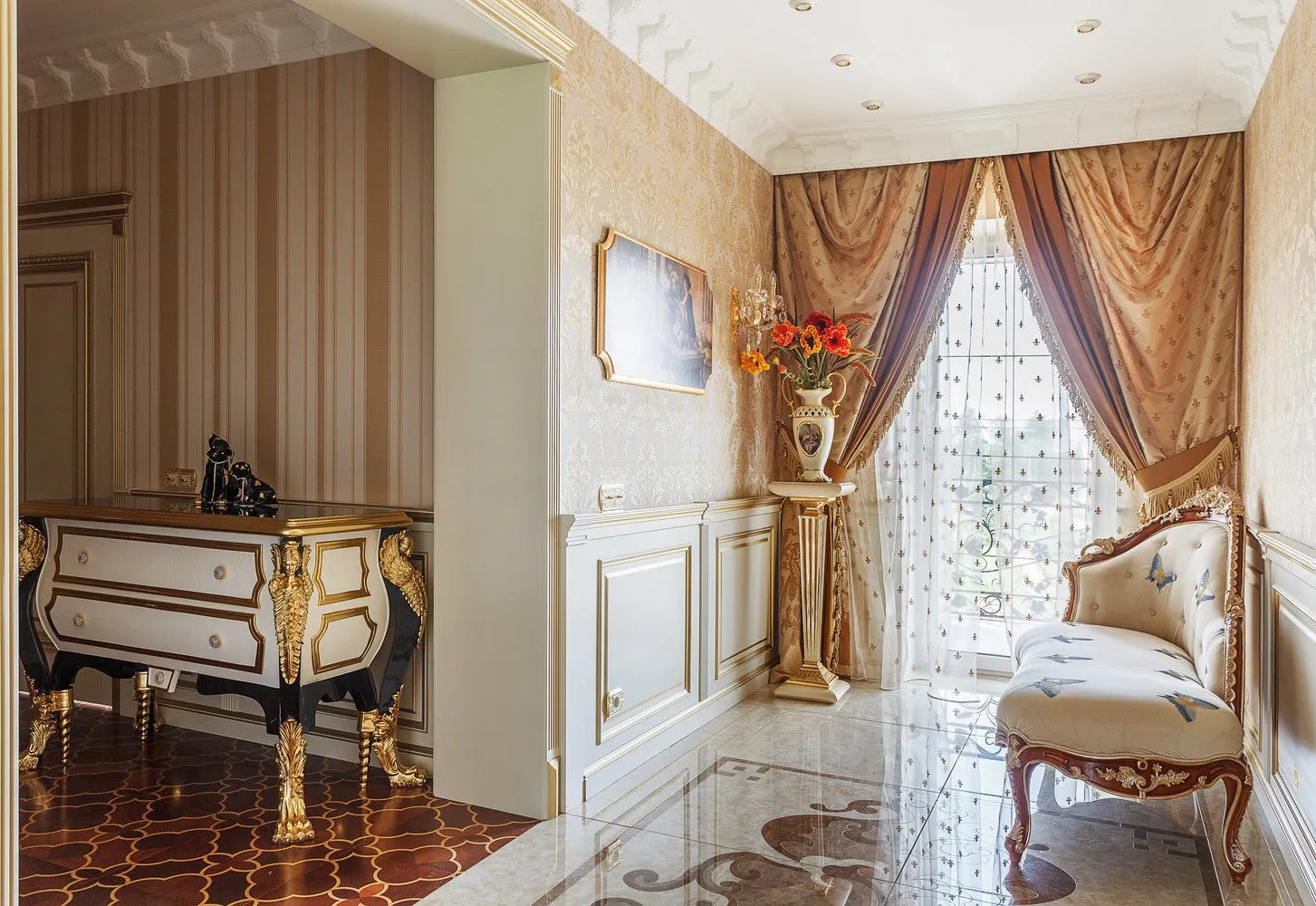
Installing a Ceiling by Yourself
To create a perfectly beautiful ceiling, it's not necessary to hire specialists; you can handle the task yourself.
If homeowners decide to paint or wallpaper the ceiling, they need to perform the following steps:
- First, remove lighting fixtures and isolate wires;
- Then remove the ceiling trim;
- Remove the old layer of whitewash;
- Prime and plaster the ceiling;
- Ensure a smooth layer; it's better to install guide rails;
- Wait for the applied plaster to dry, then level the surface using spackle;
- Depending on the finishing choice, apply a layer of paint or wallpaper. In the first case, wait for the first coat to dry before applying a second one.
A perfectly flat and beautiful ceiling is ready.
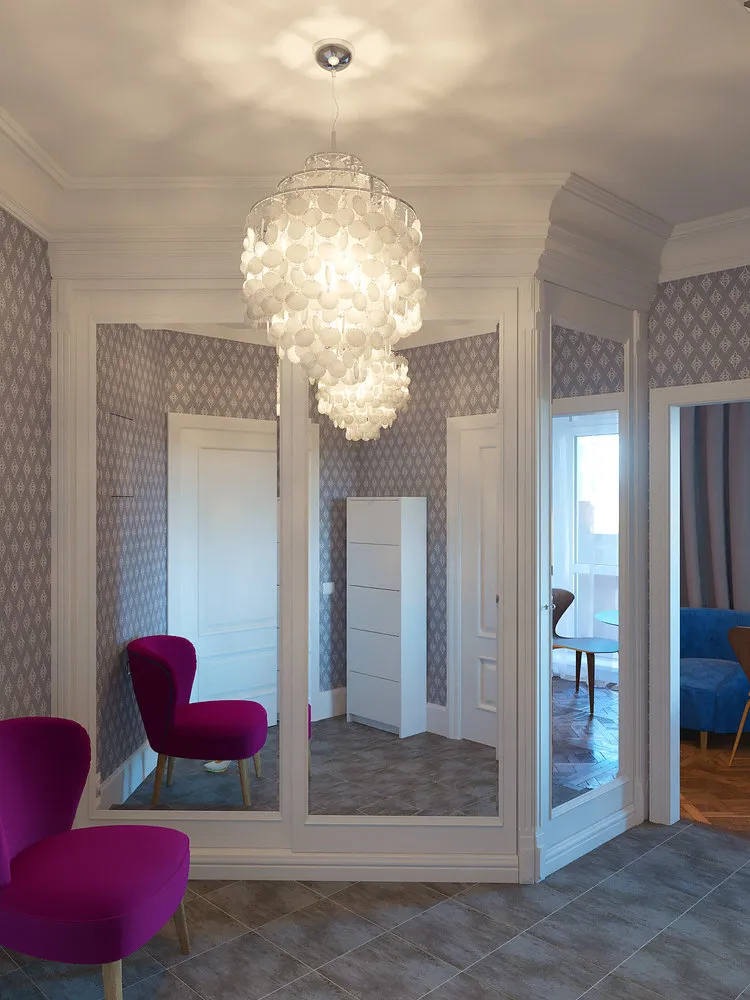
Design: Anna and Daniil Shepanovich, Cubiq Studio
To install a stretch ceiling independently, no surface preparation, priming, or plastering is required. You need:
- First, fix brackets around the perimeter;
- Then sequentially insert the edges of the fabric into the special slots of the brackets;
- To make the fabric elastic and enable stretching, use a construction hair dryer.
There's nothing complicated about the procedure, but it requires two people. The only issue is with the construction hair dryer, which can be rented.
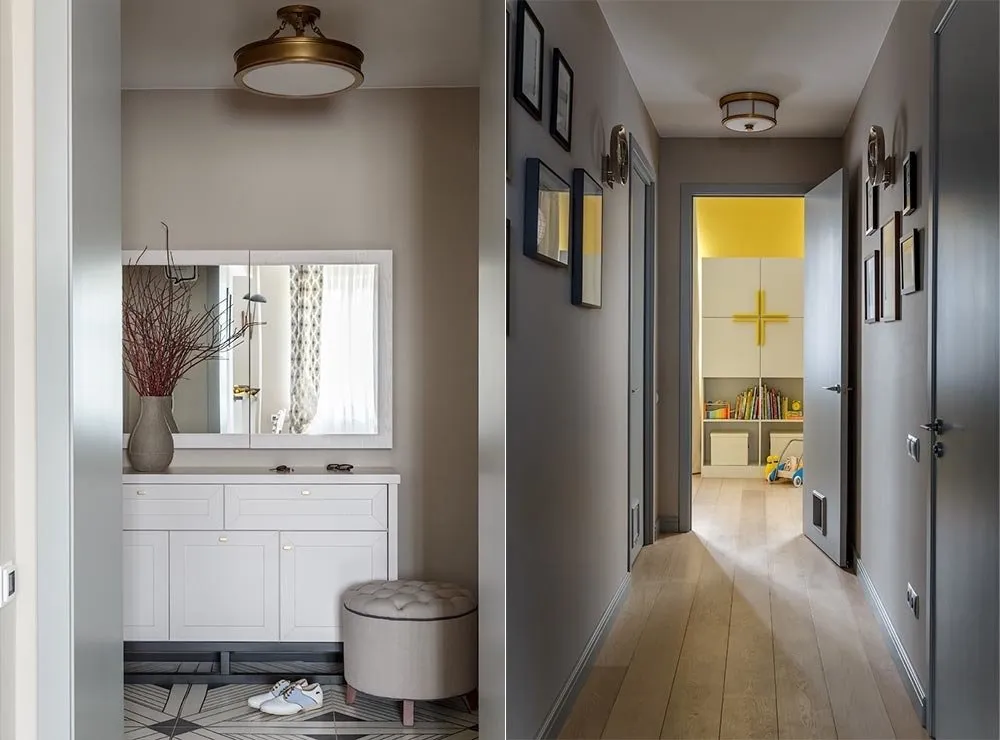
As can be seen, the ceiling is an essential part of any interior. Every homeowner chooses their own design variant based on individual preferences, but it's always important to understand what the overall result will look like. Therefore, it's better to preview many ceiling decoration examples beforehand, rather than regretting the choice after installation.
In addition to photo examples, you can also check out videos showing various ceiling finishing options in hallways with different interior styles and apartment designs.
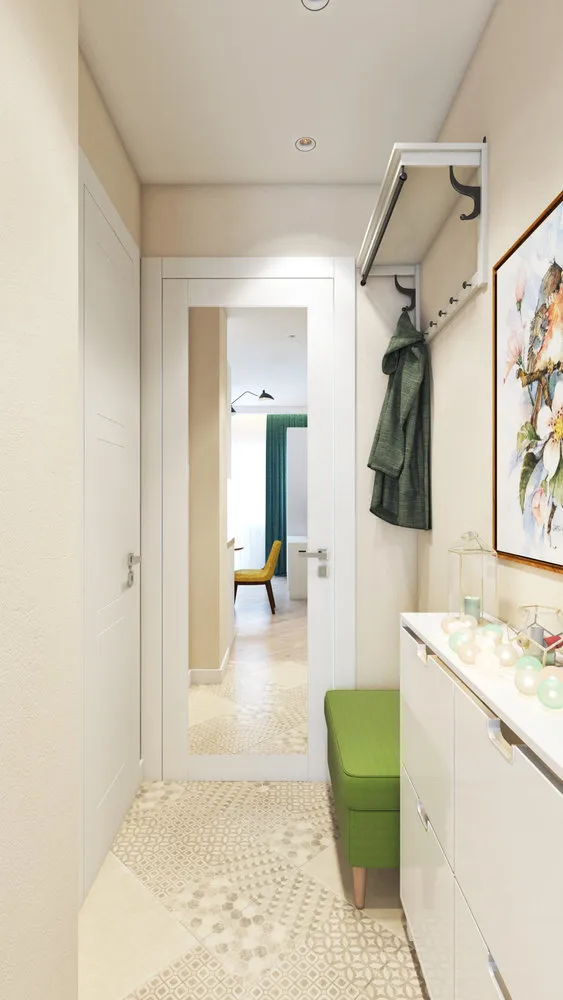
Design: Alexandra Ladanova
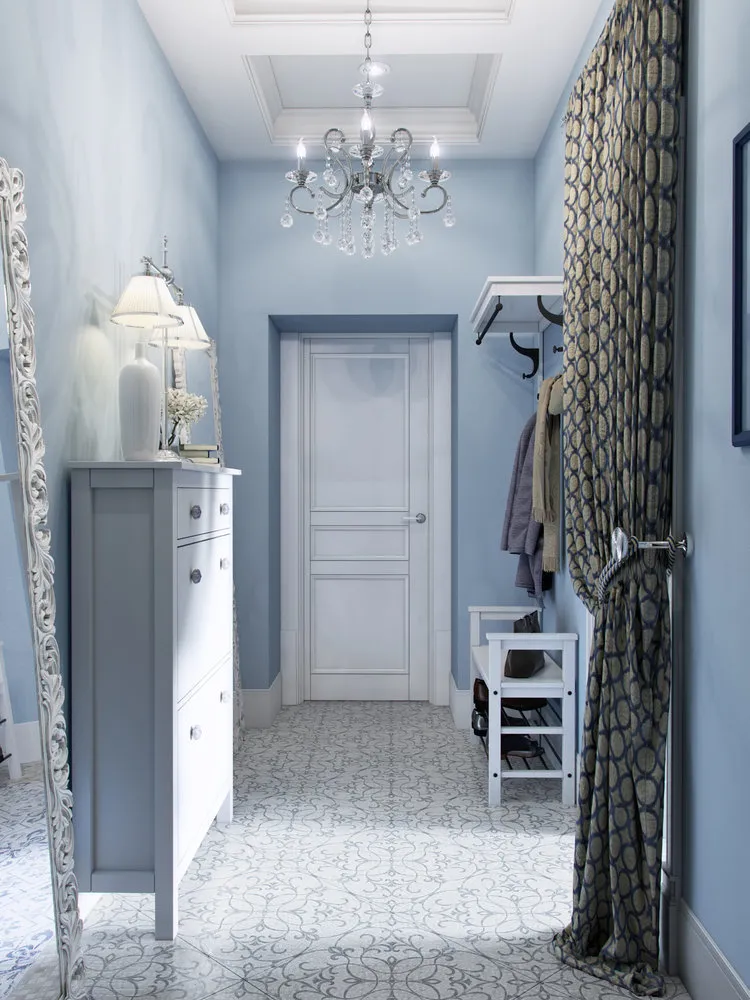
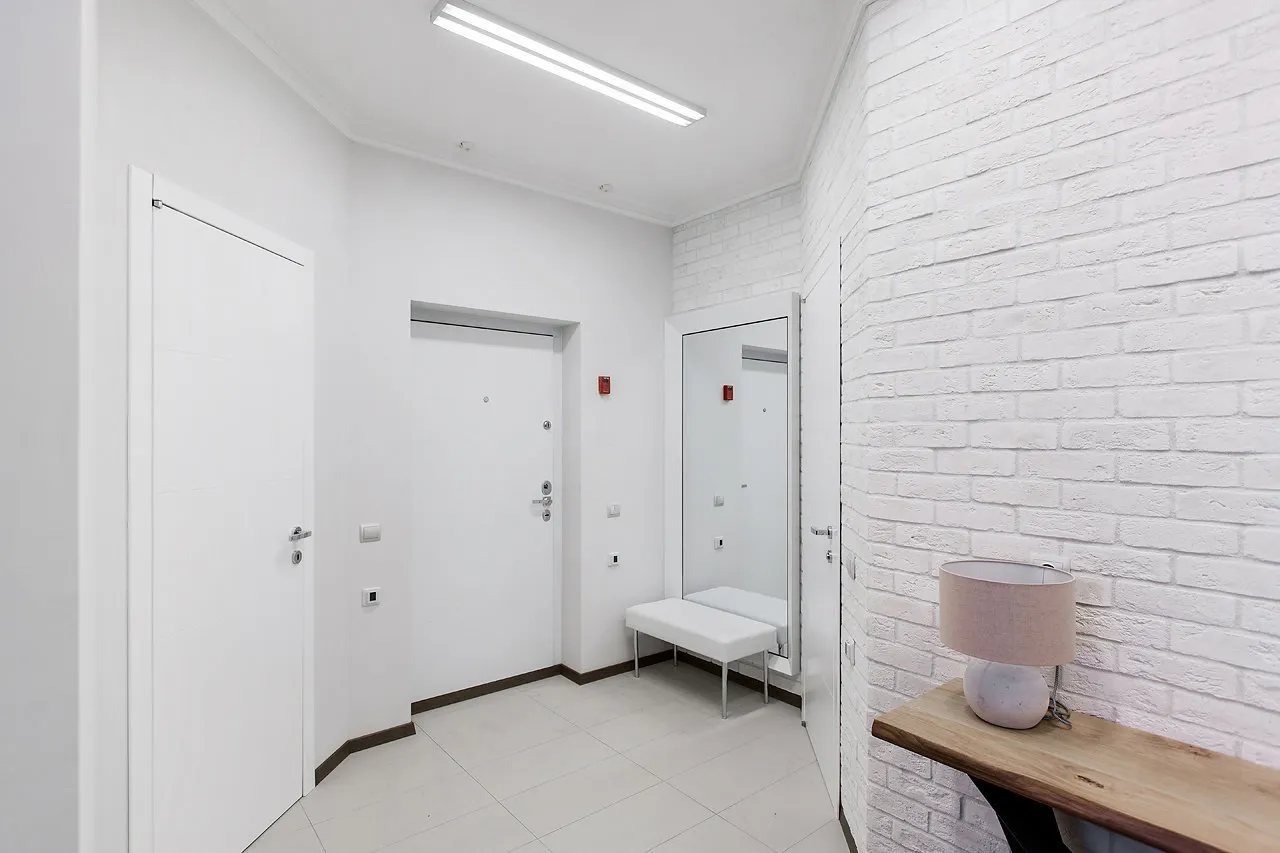
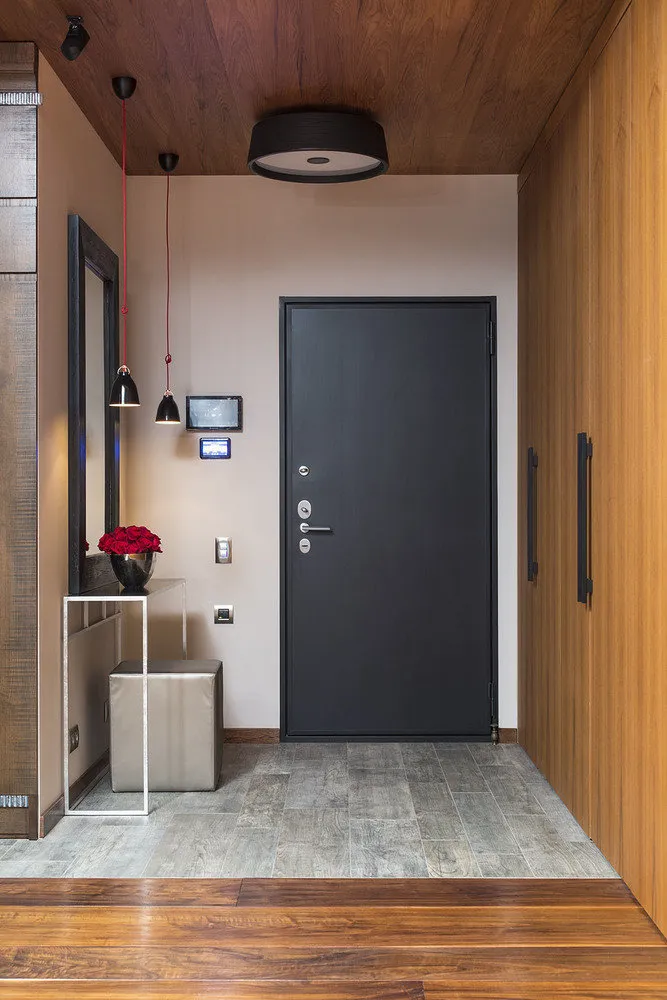
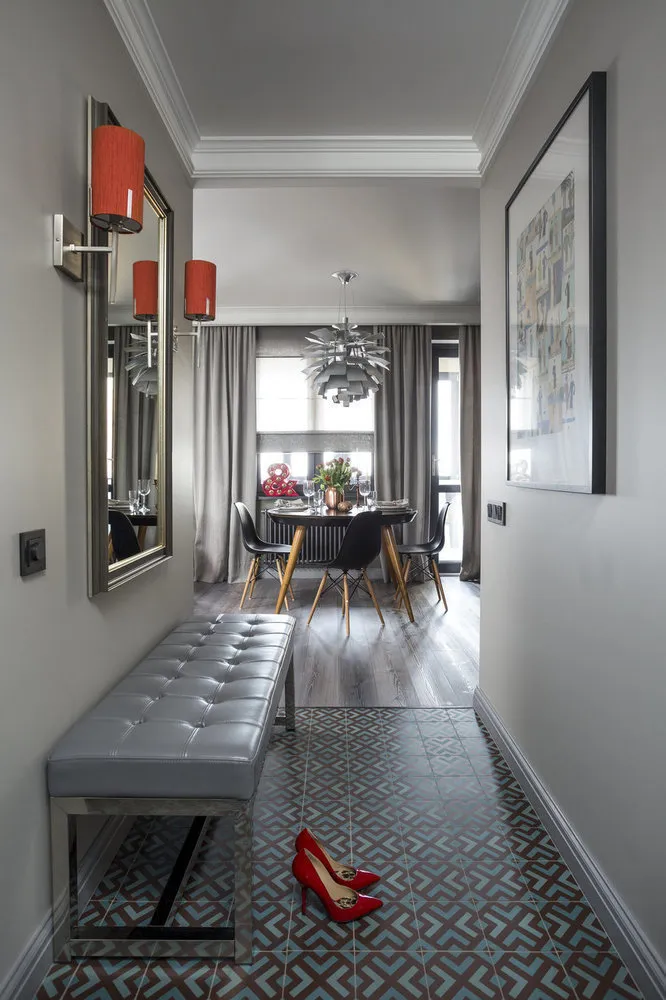
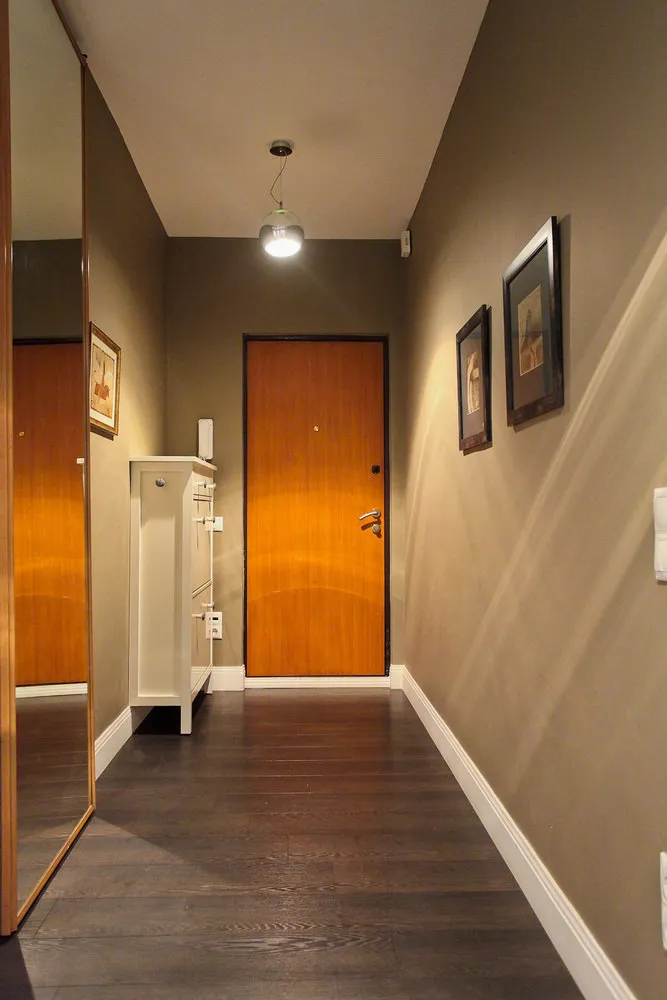
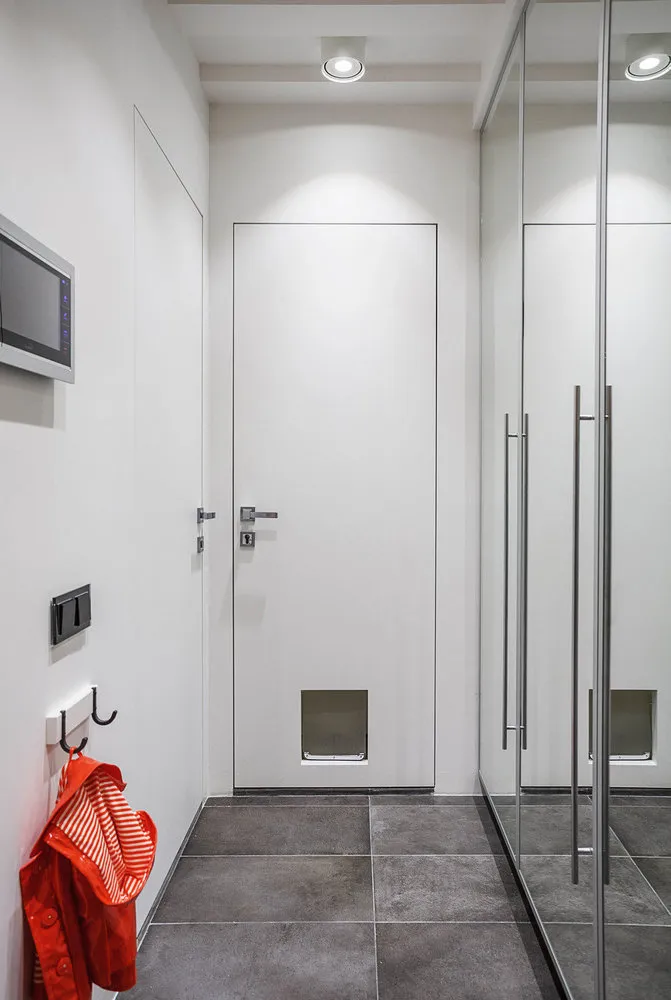
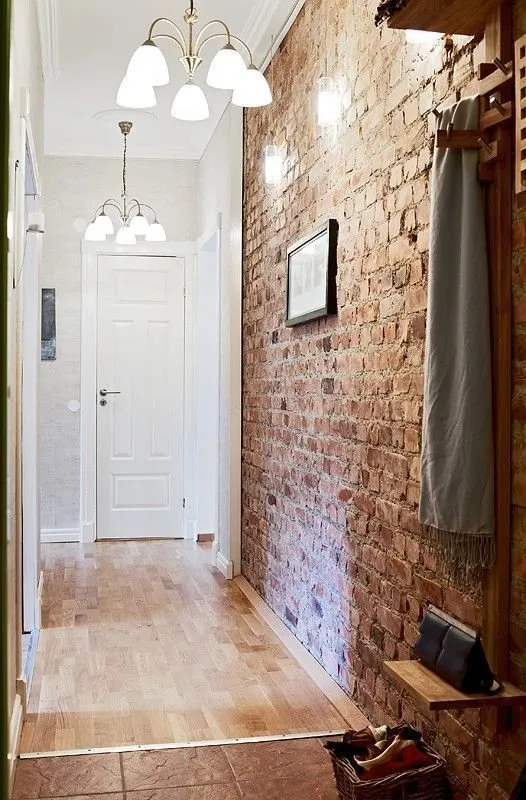
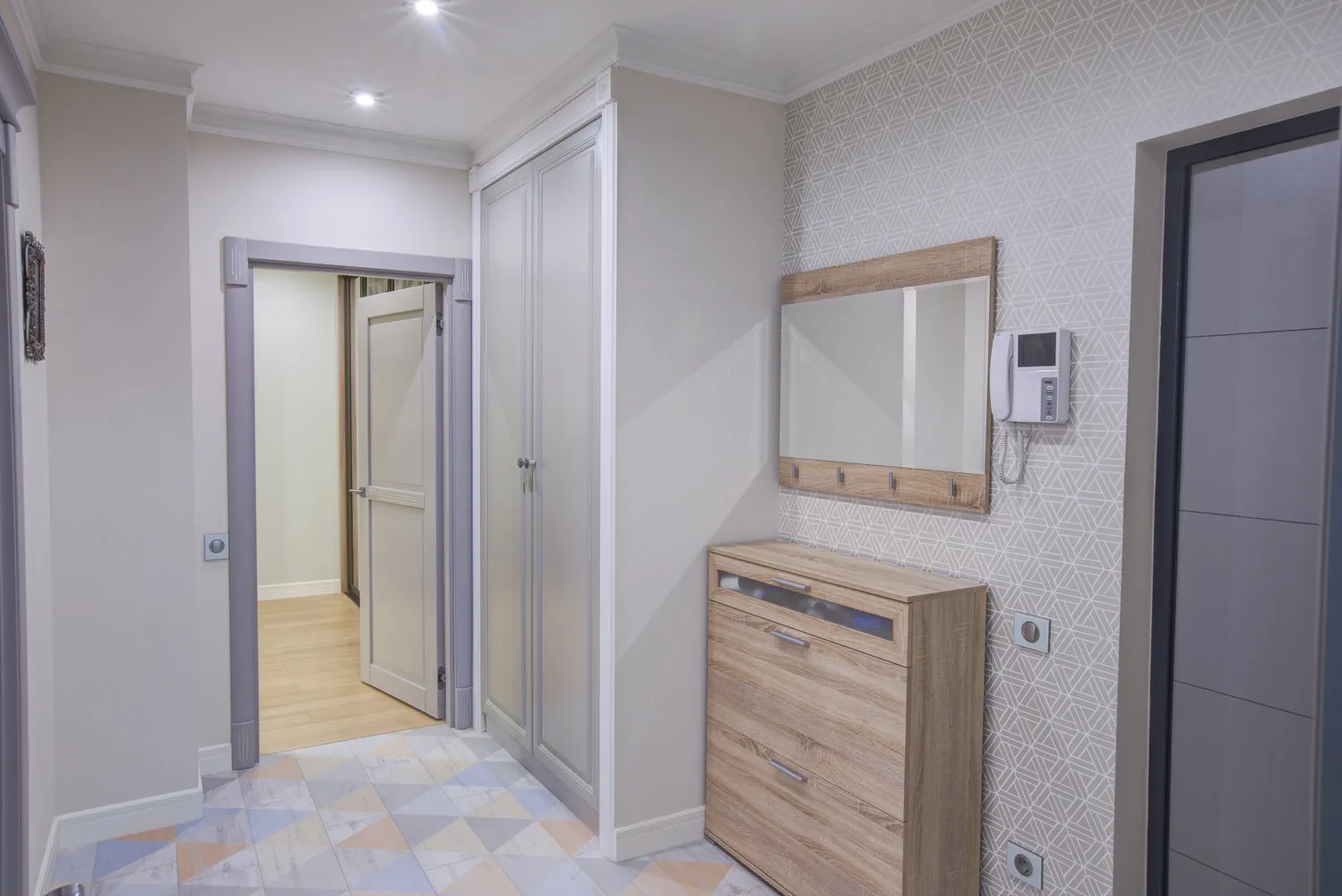
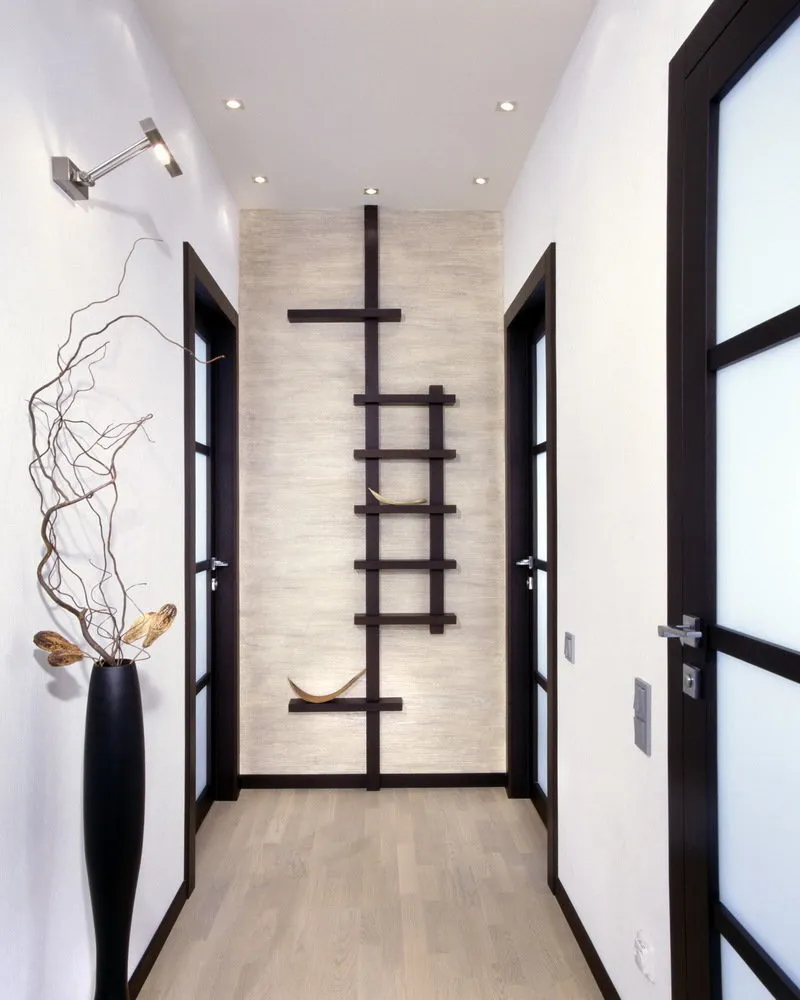
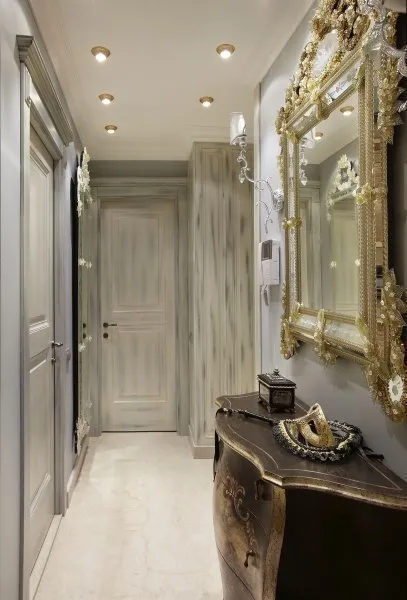
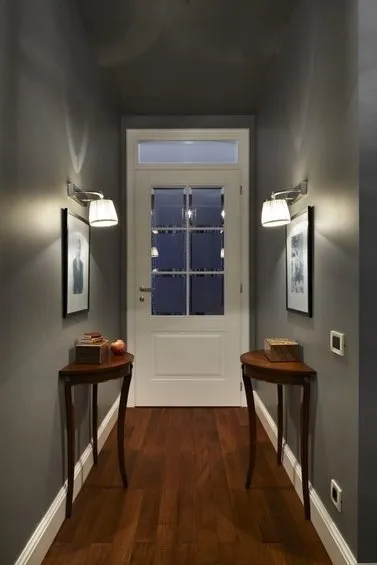
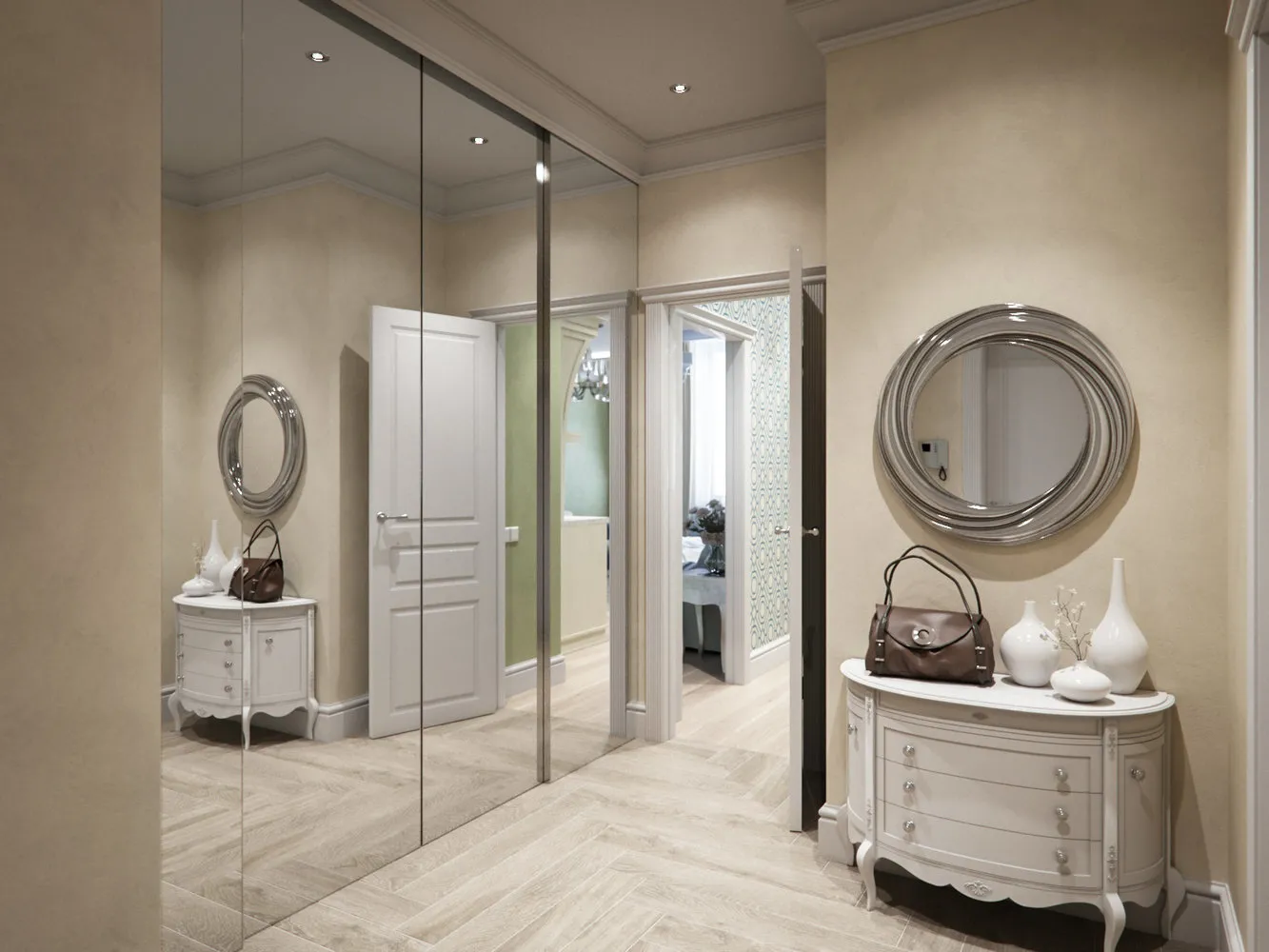
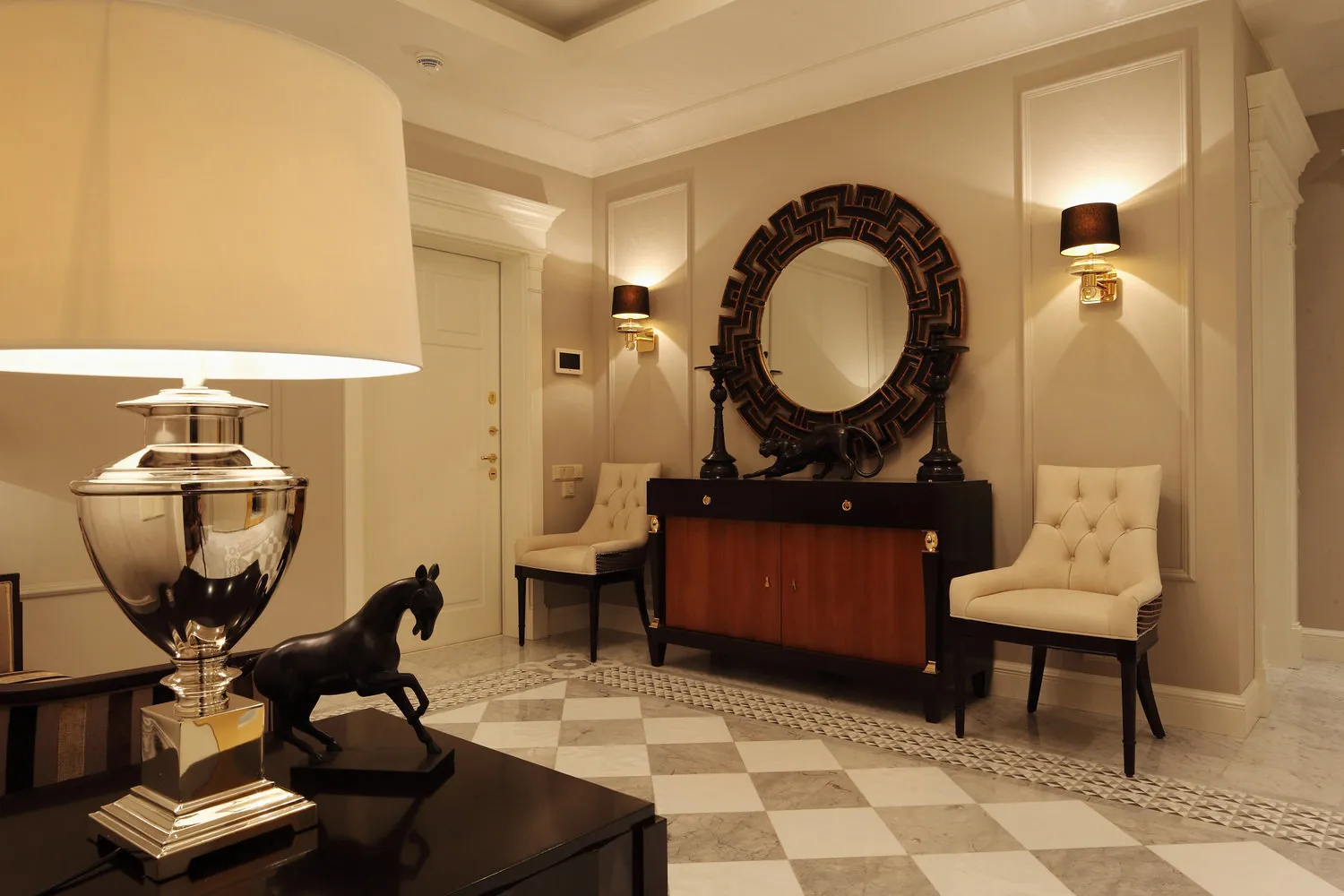
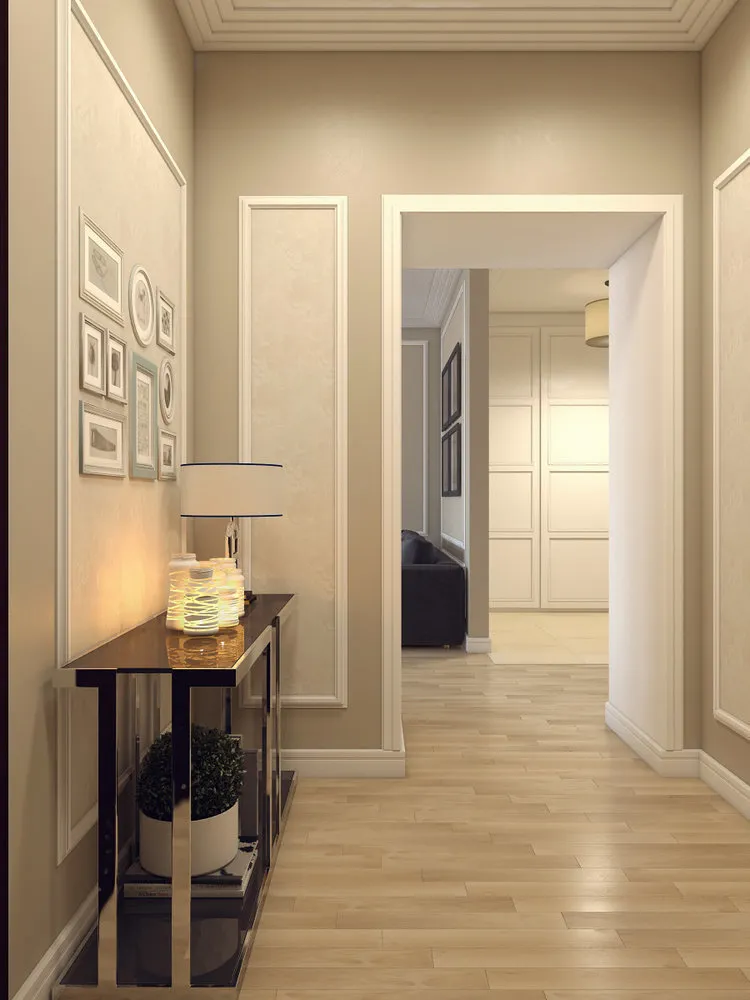
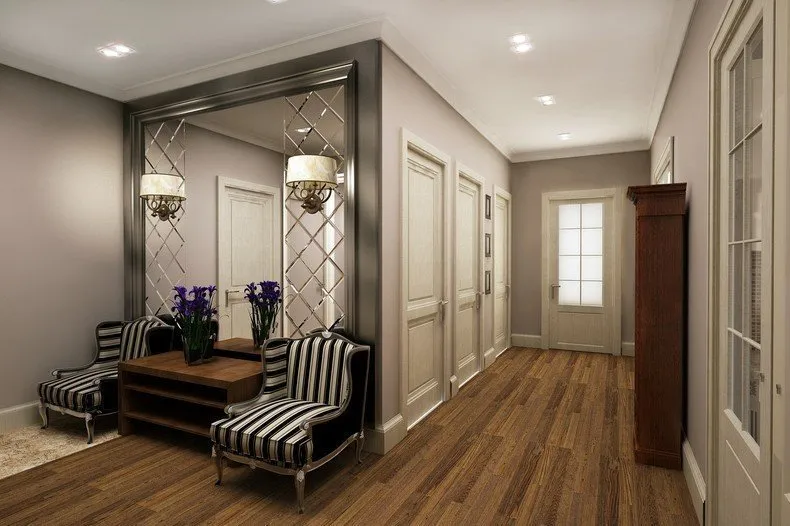
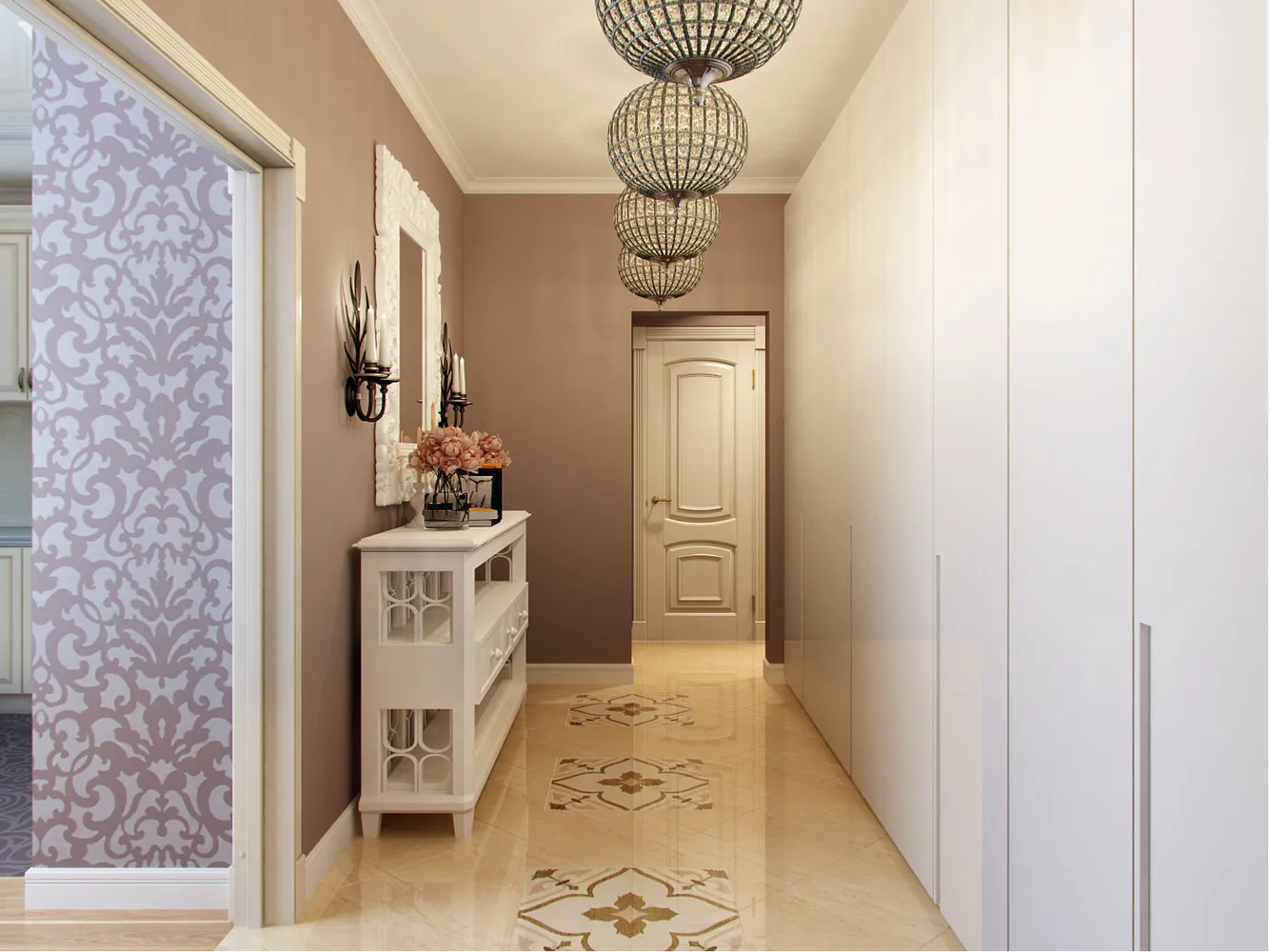
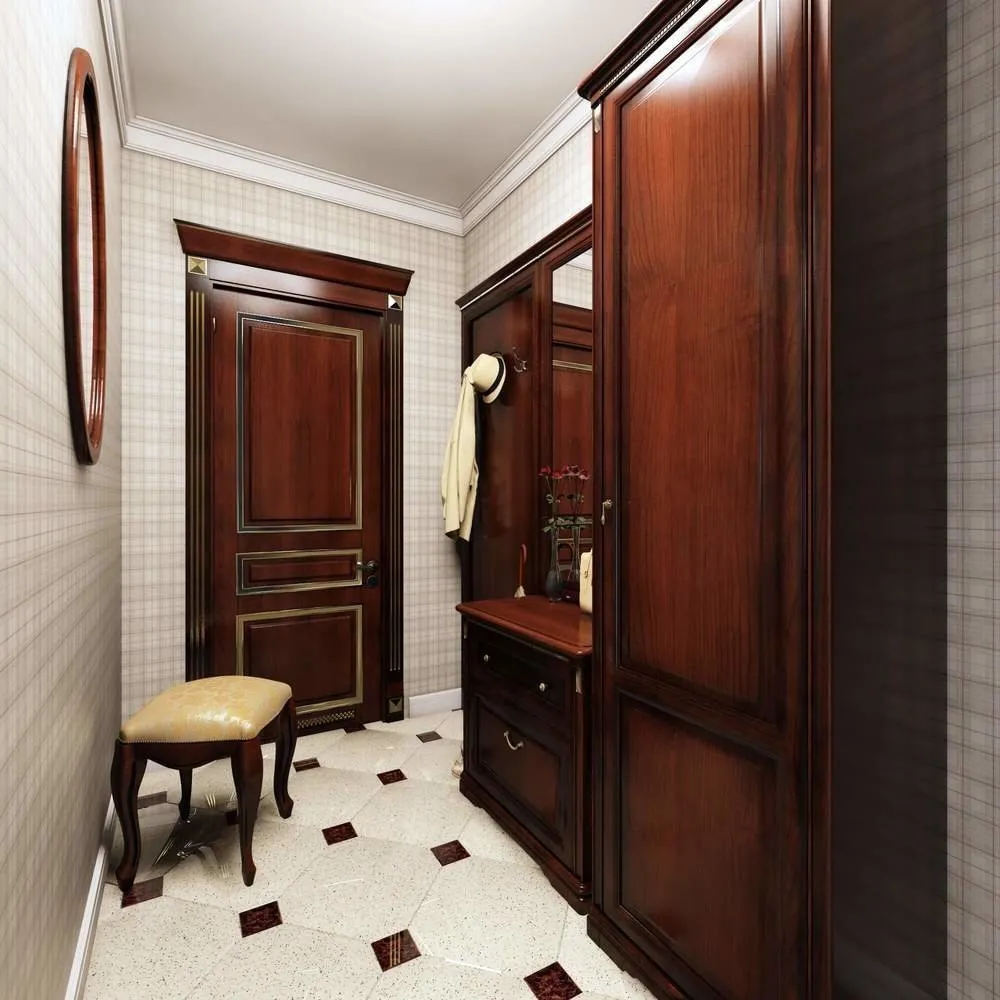
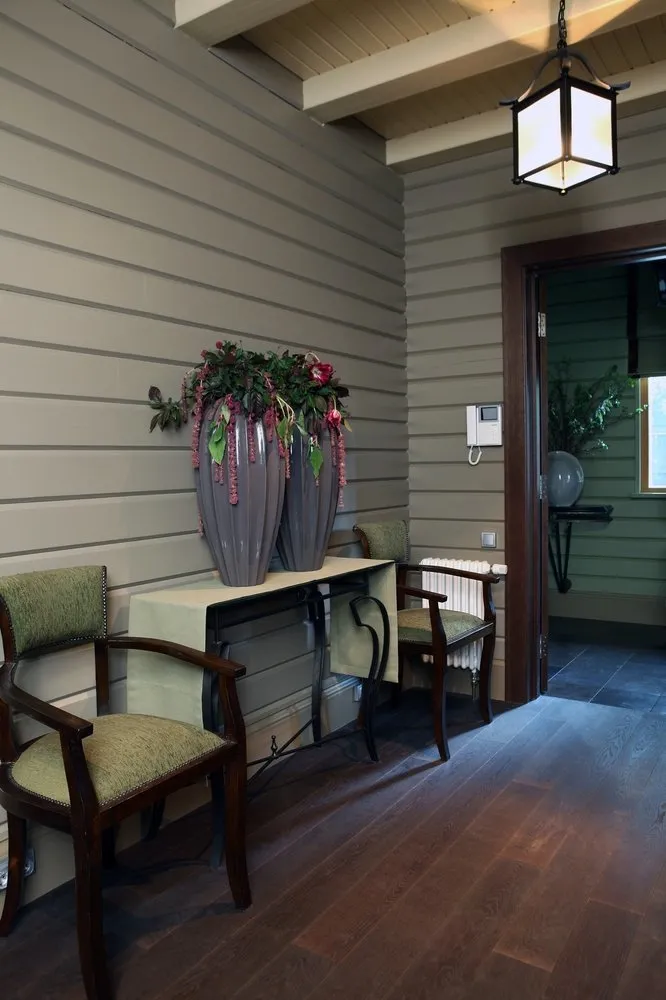
Design: Tatiana Alenina
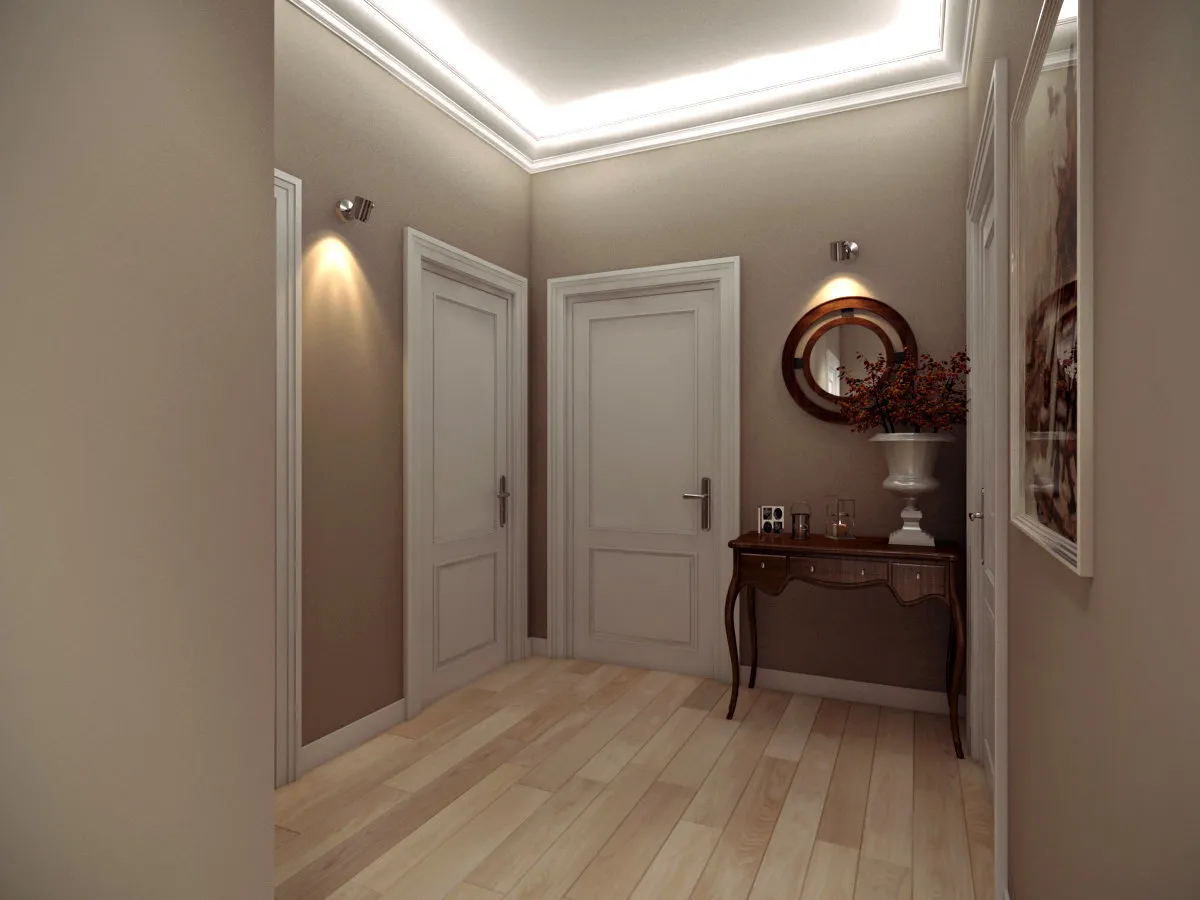
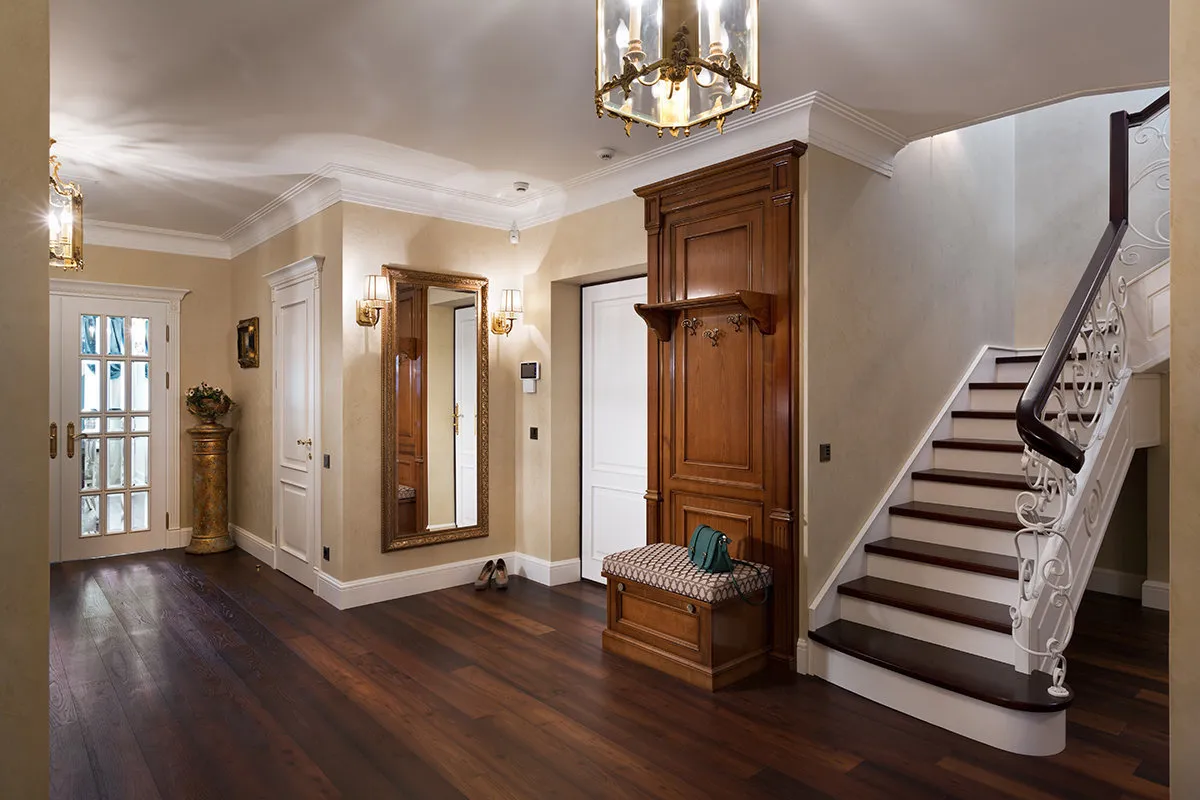
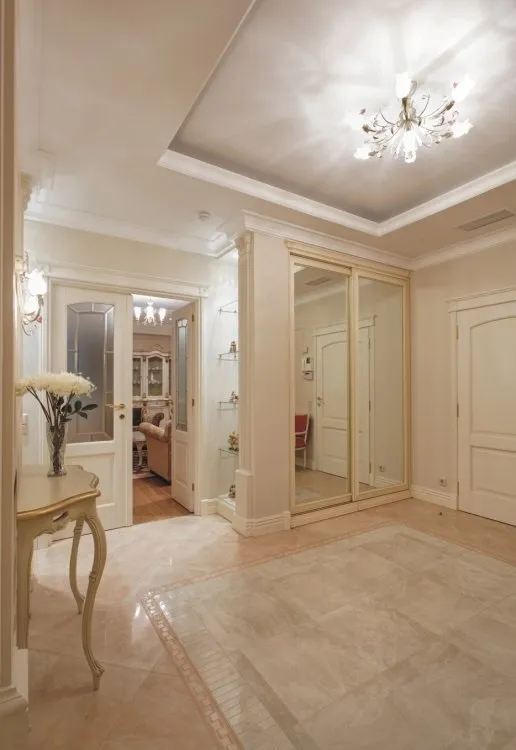
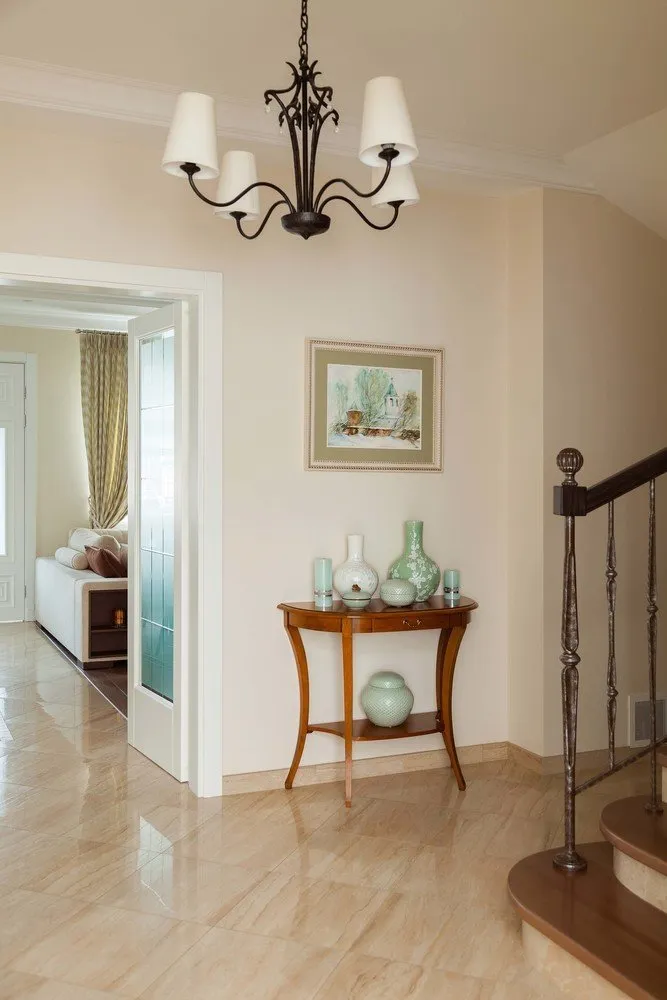
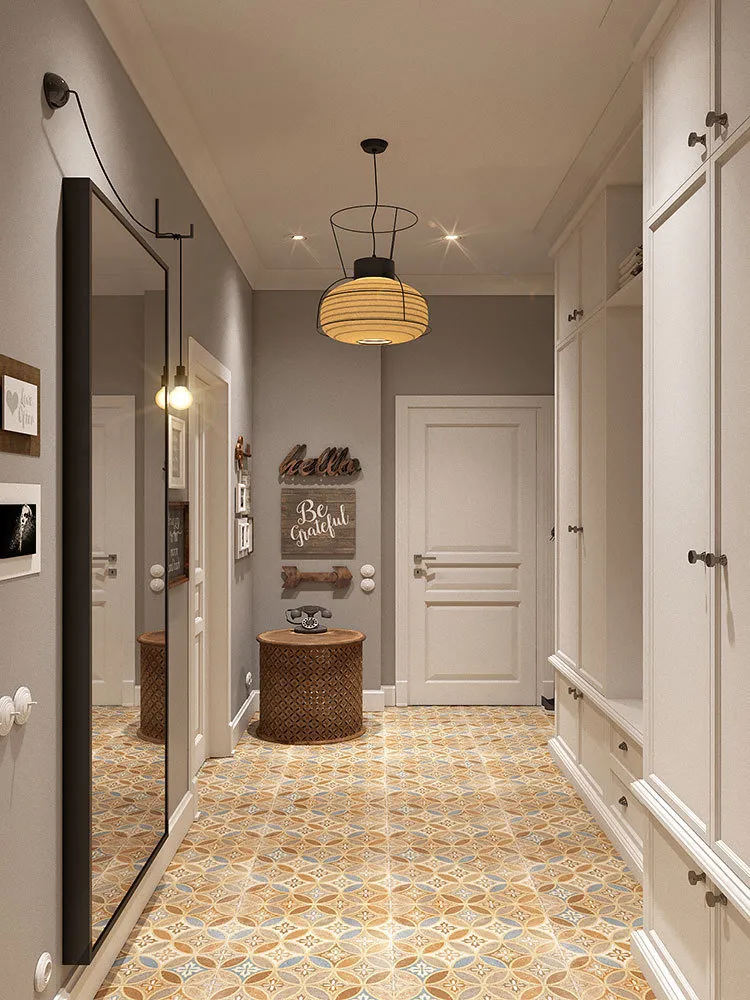
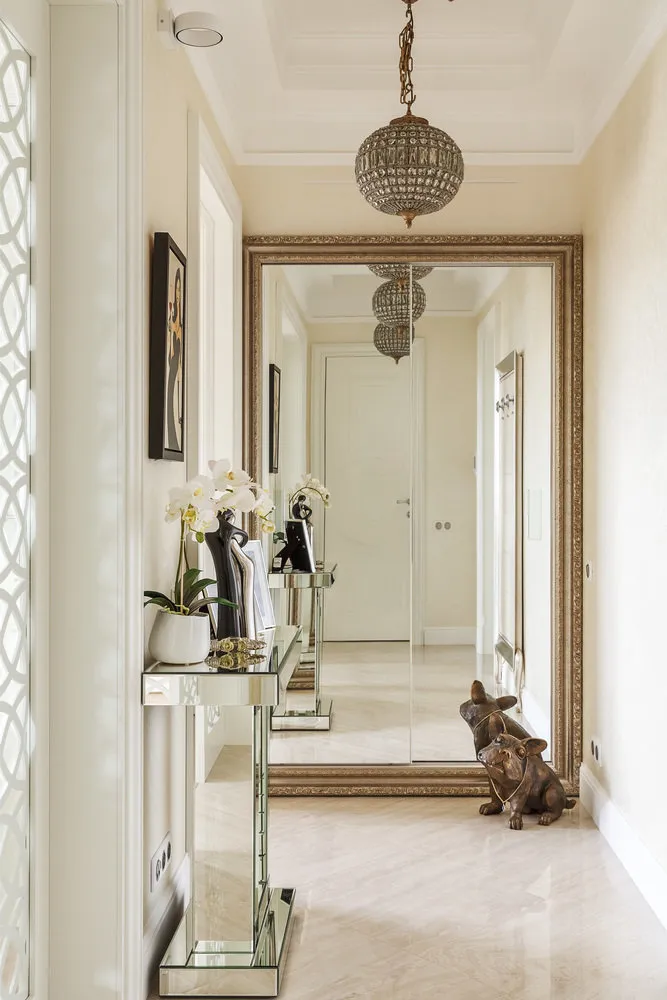
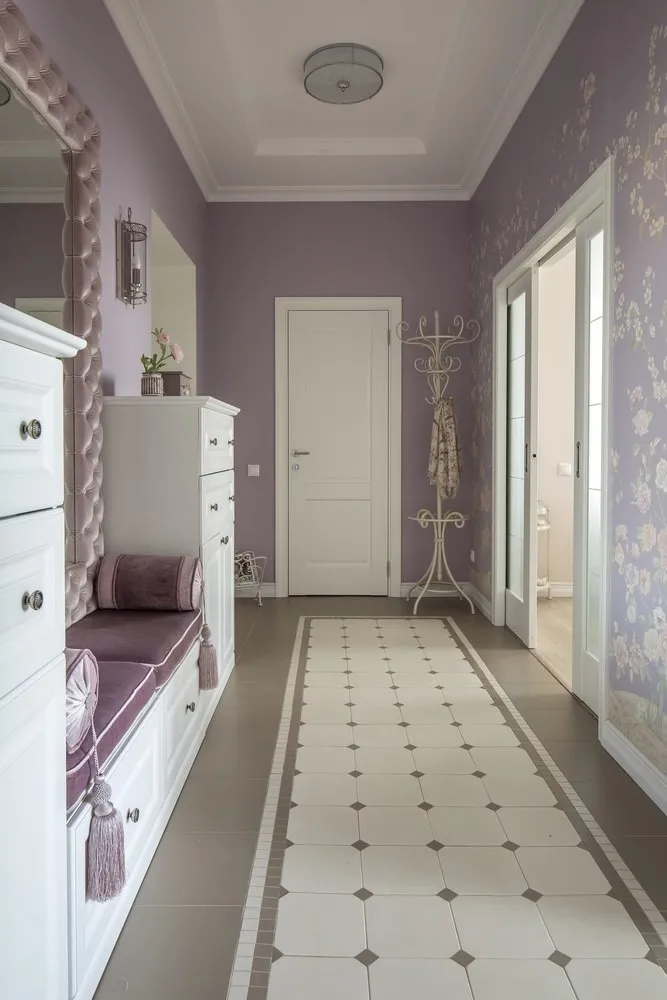
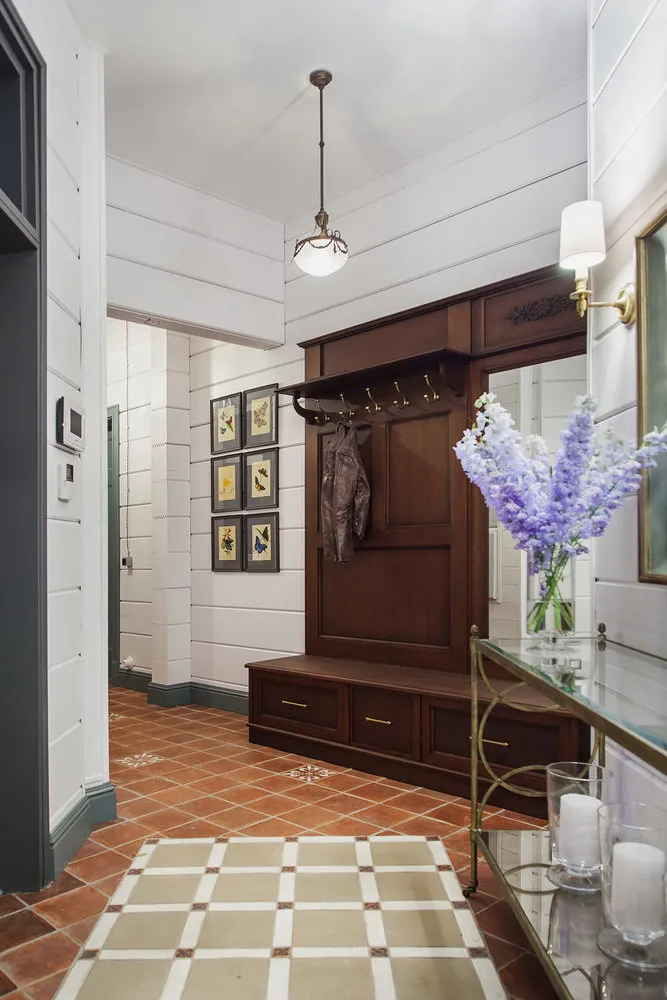
Design: Prosperity Studio
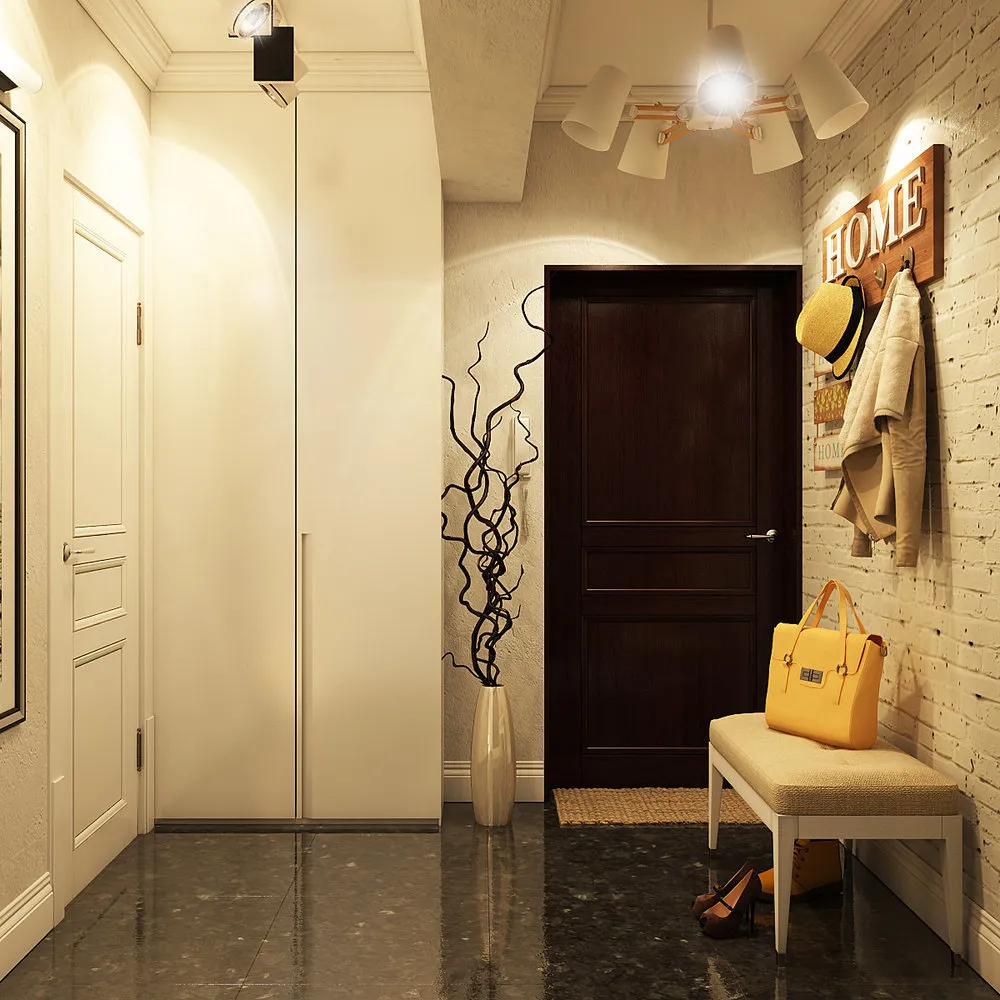
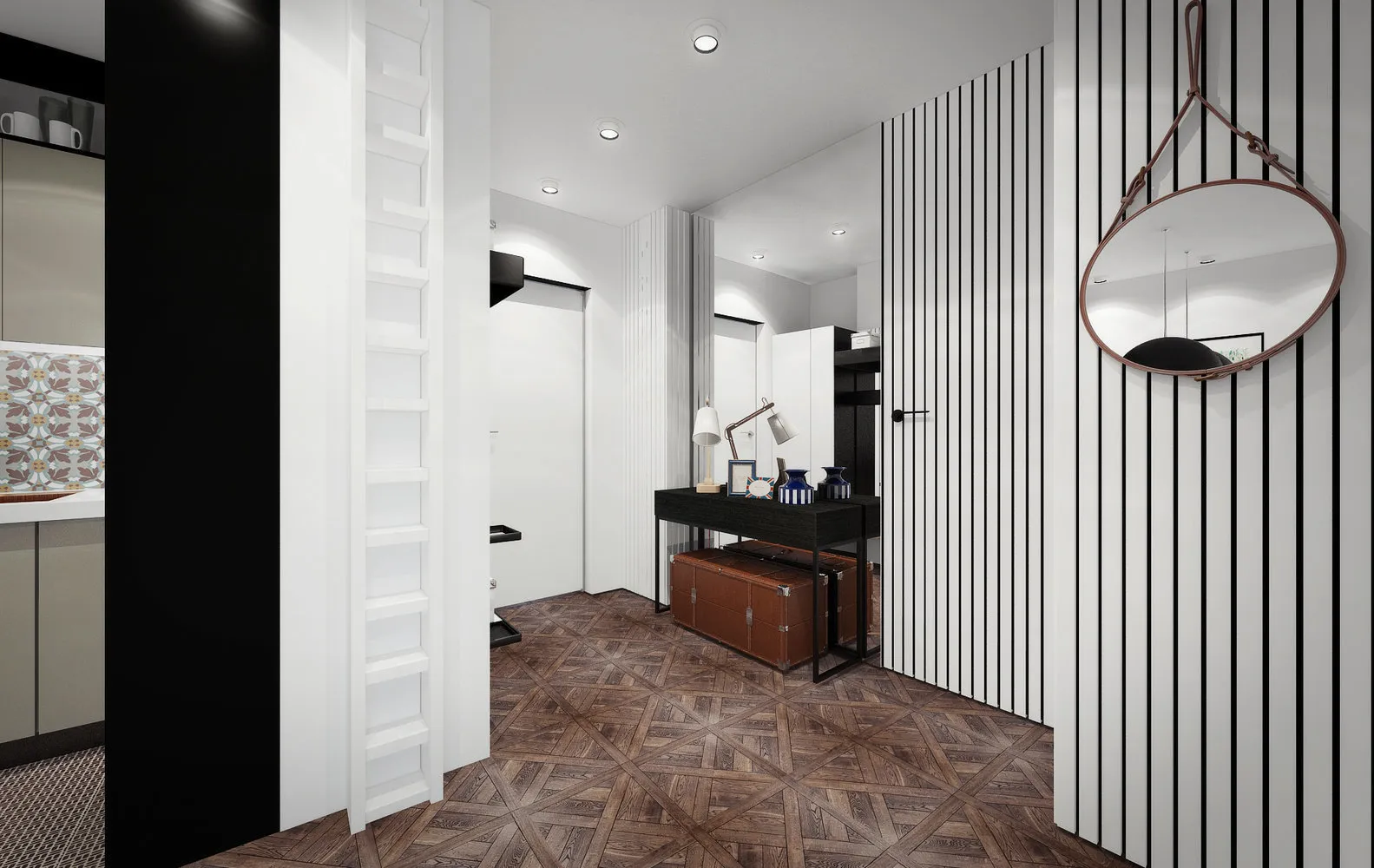
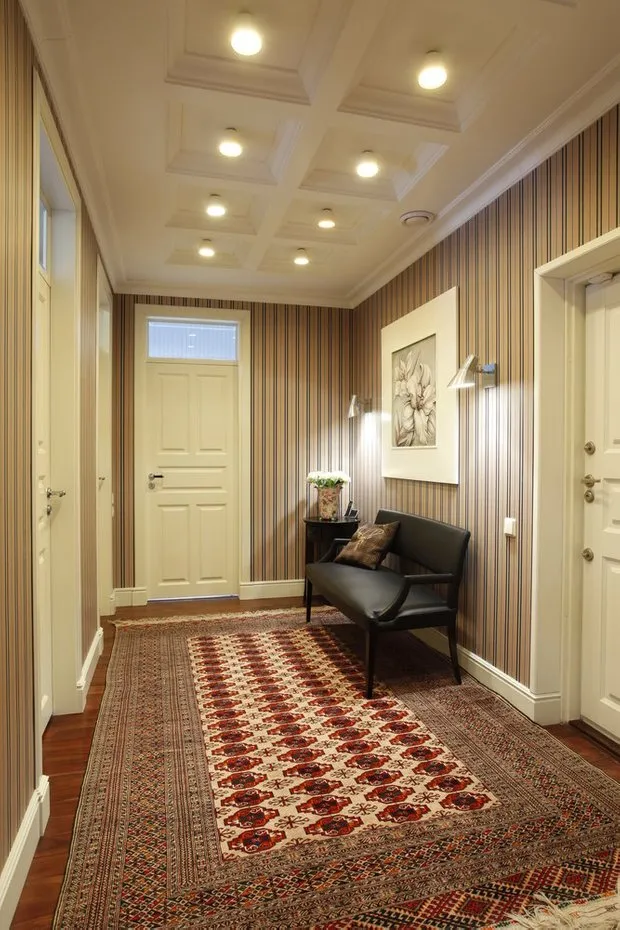
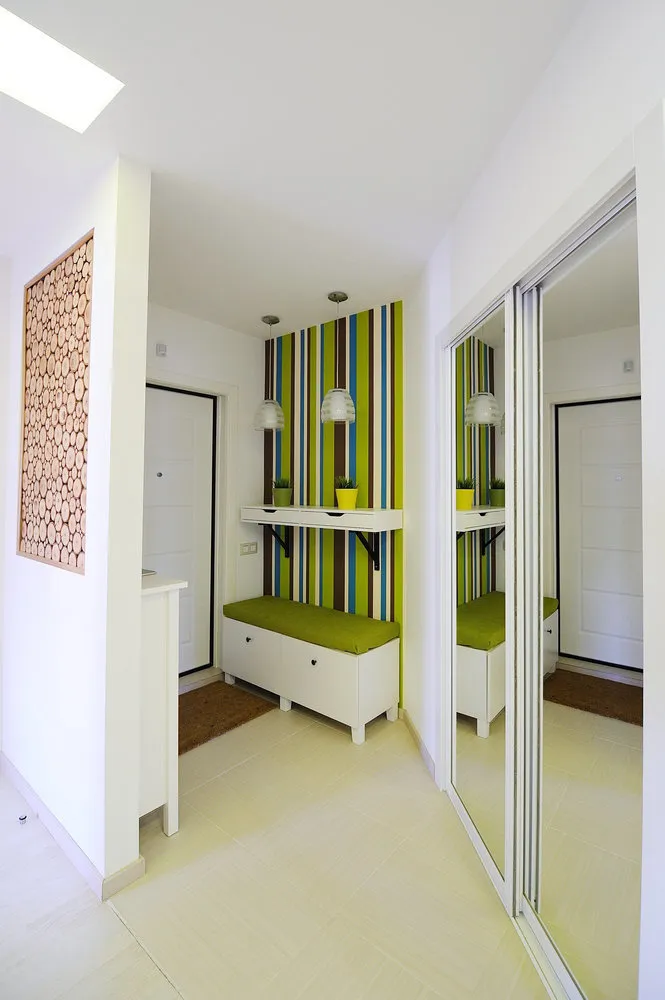
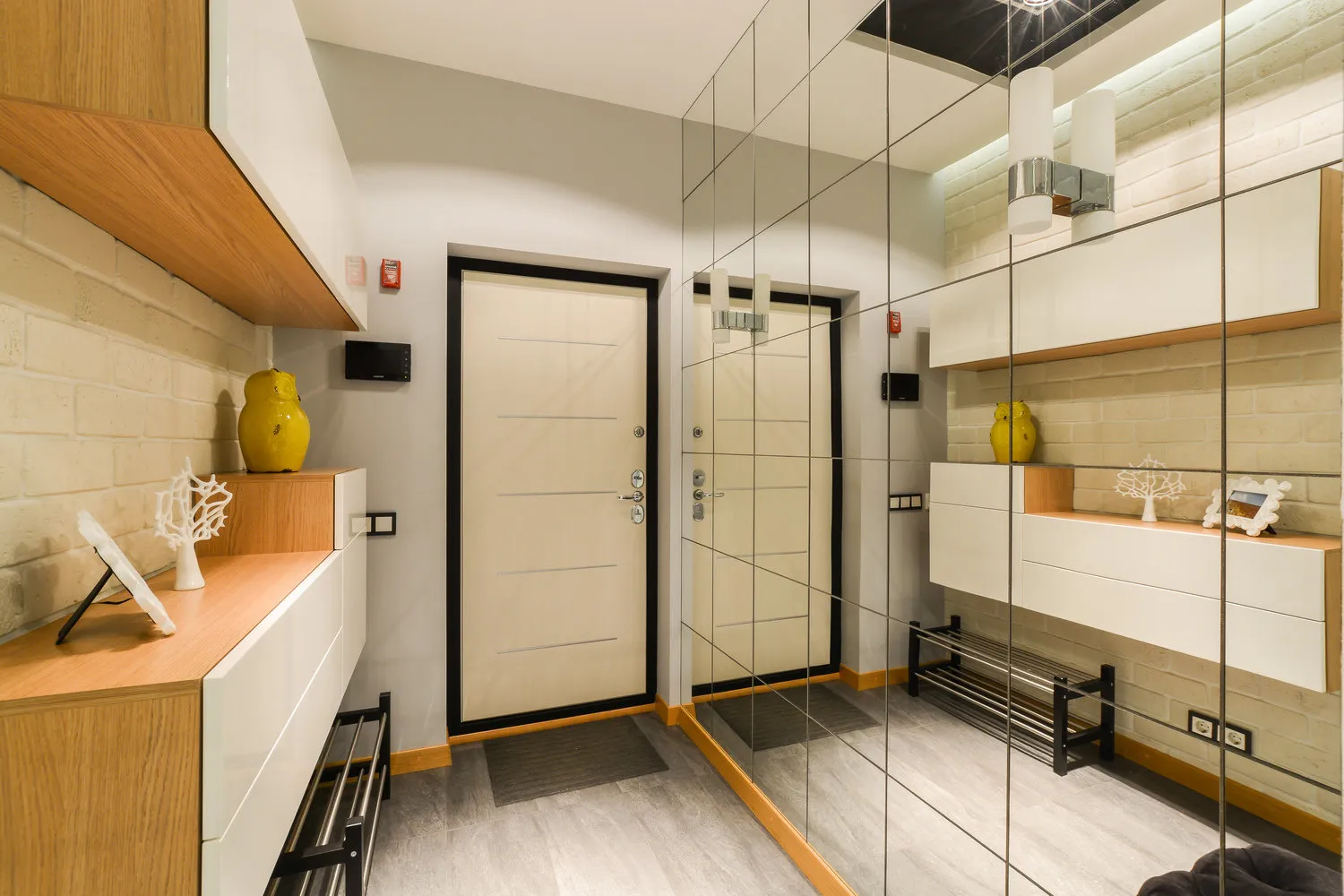
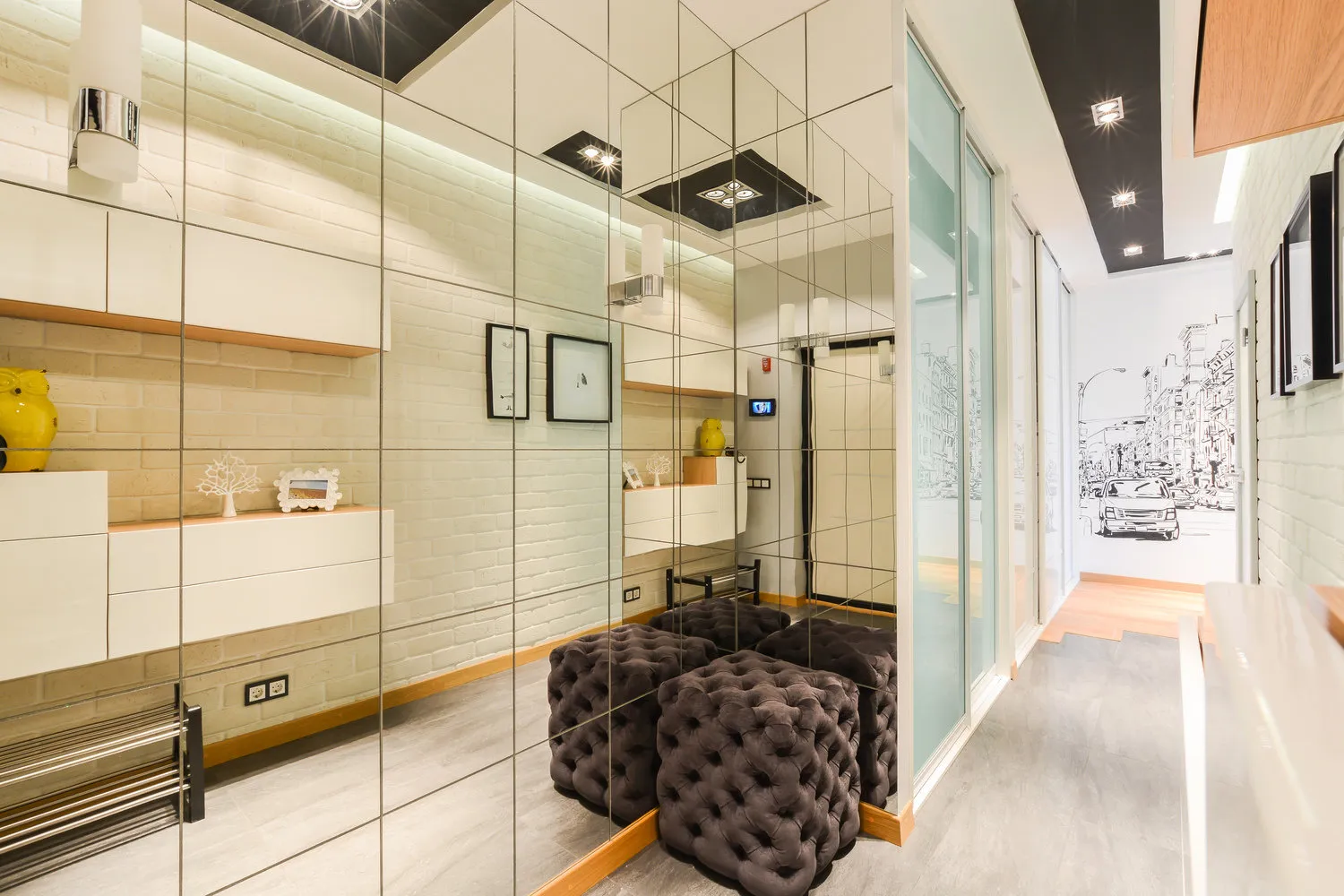
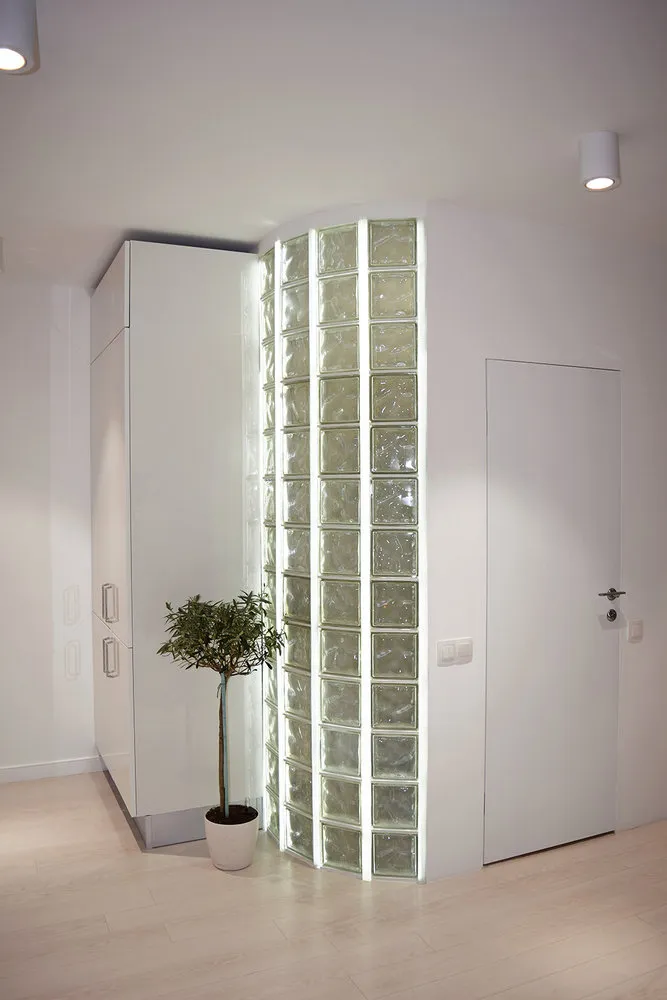
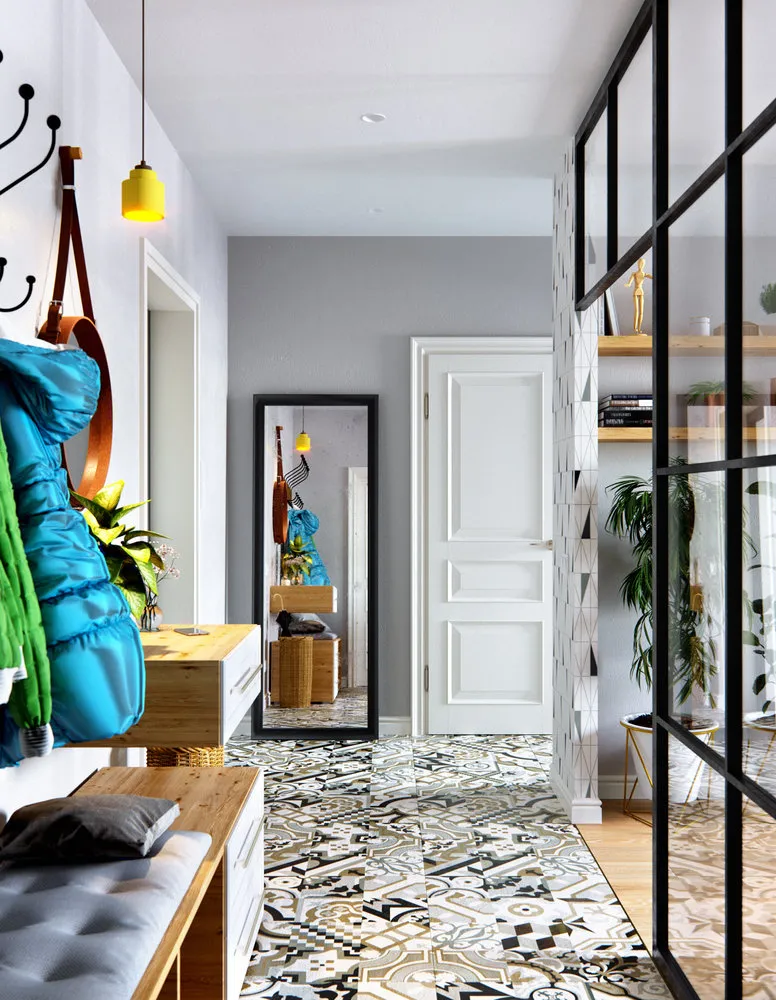
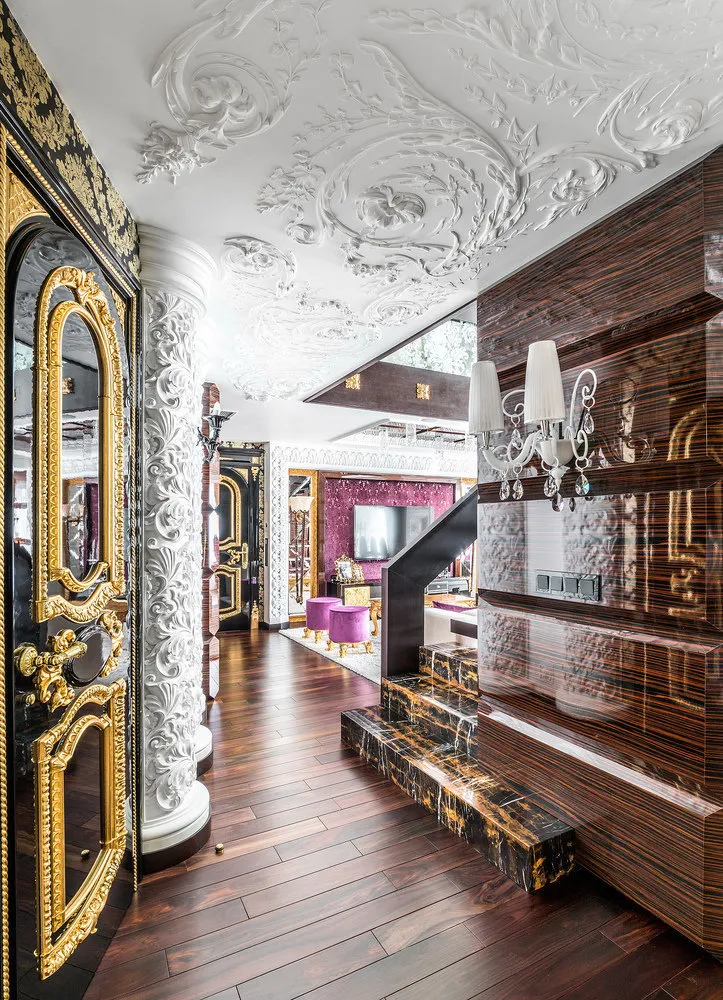
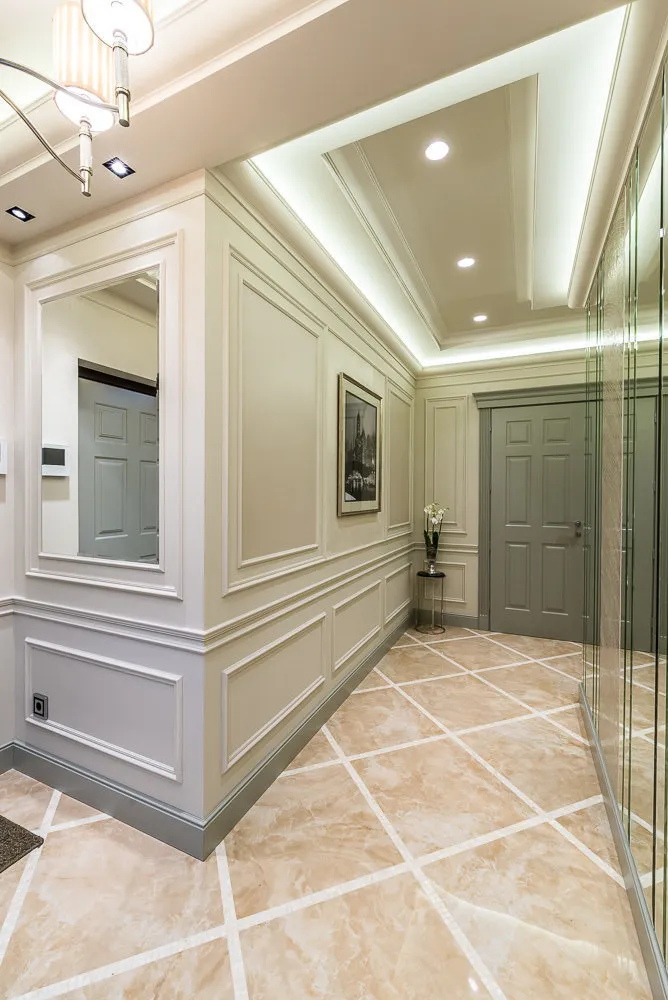
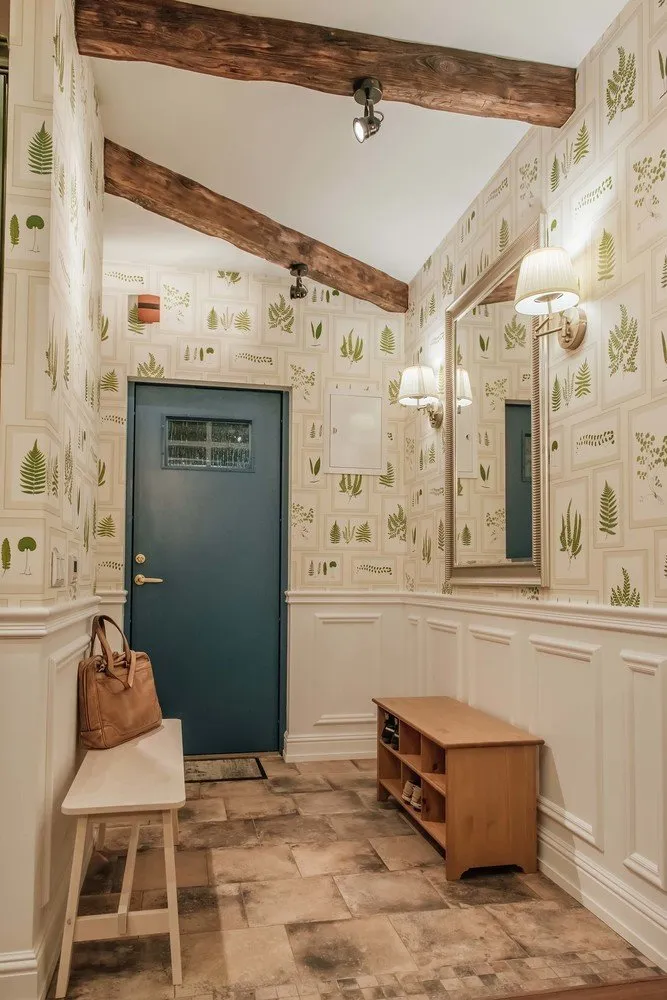
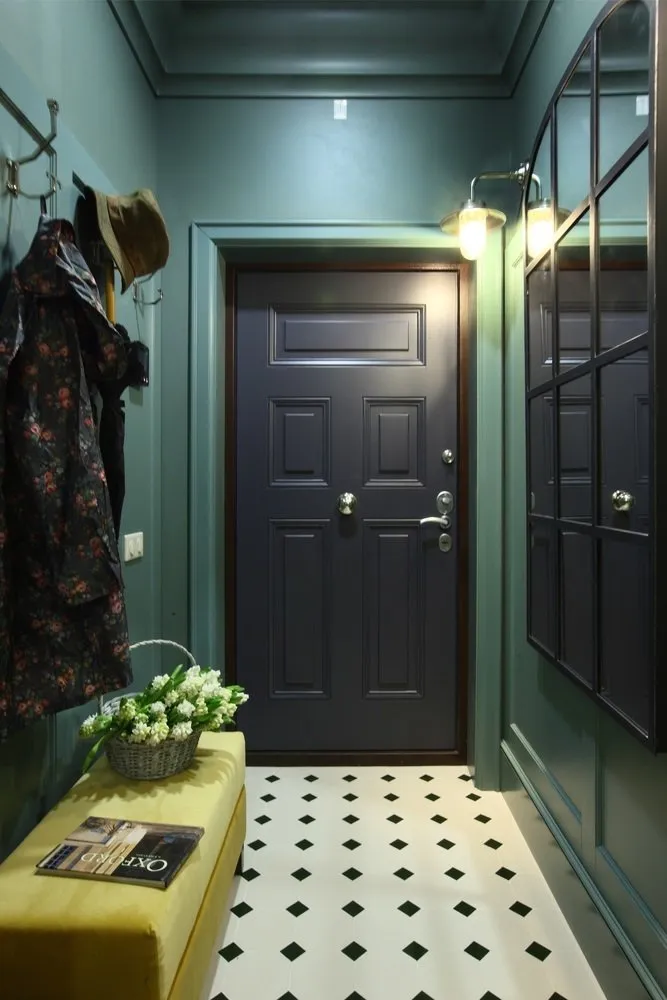
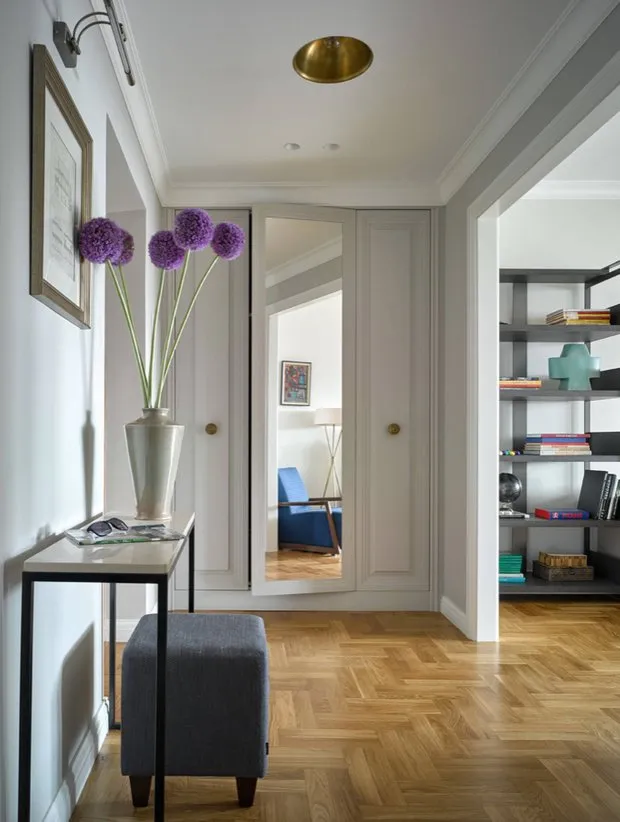
Recommendations from Oxana Panteleeva
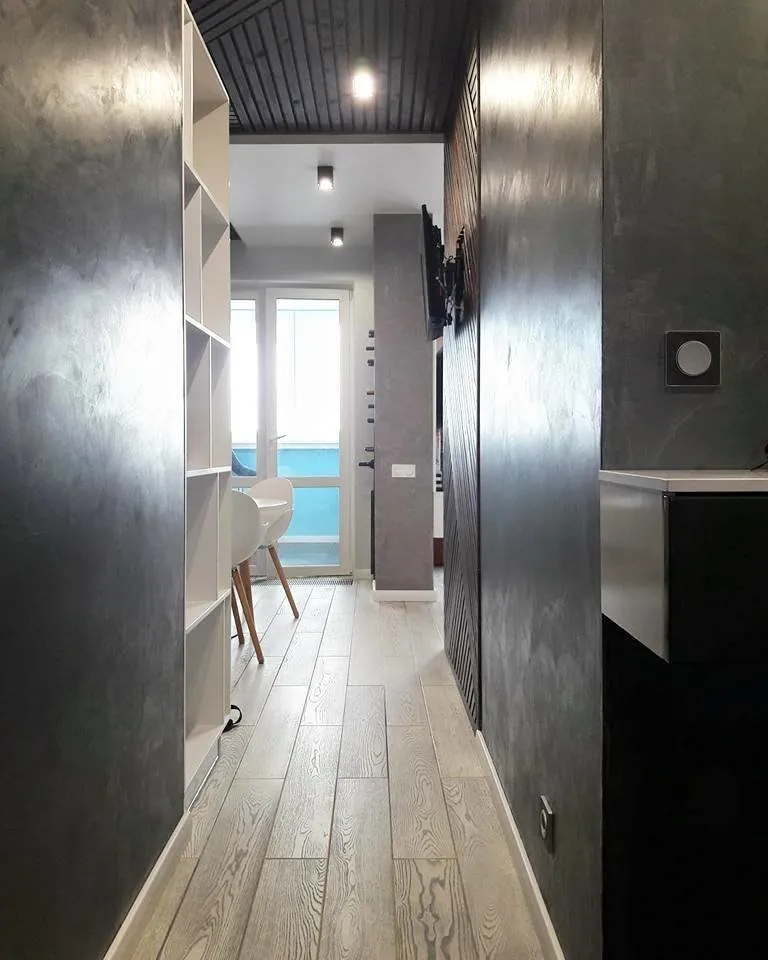
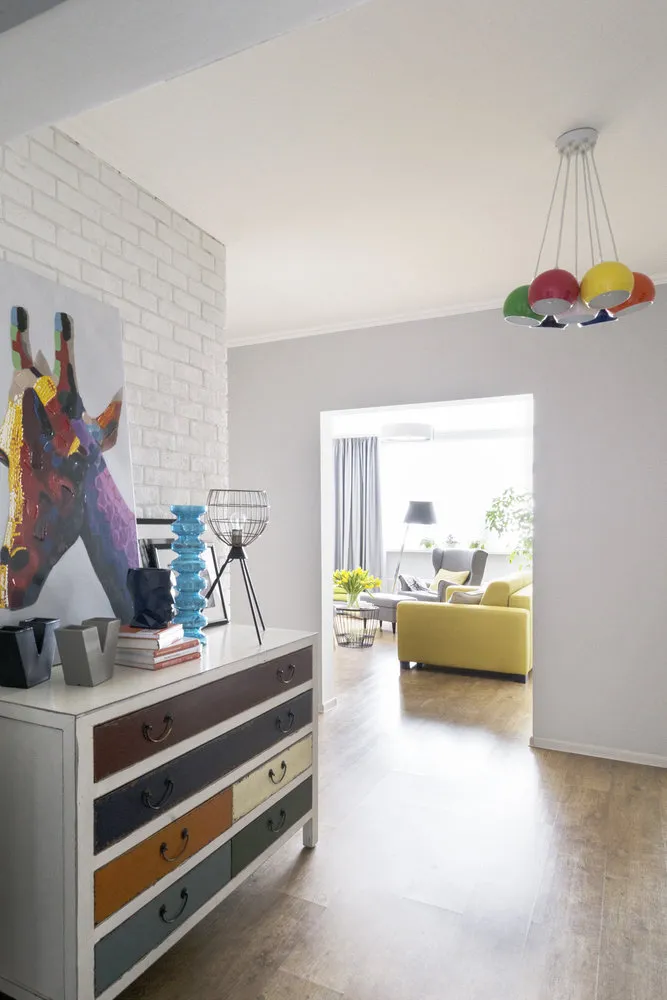
Design: Ekaterina Belyakova and Olga Karayani
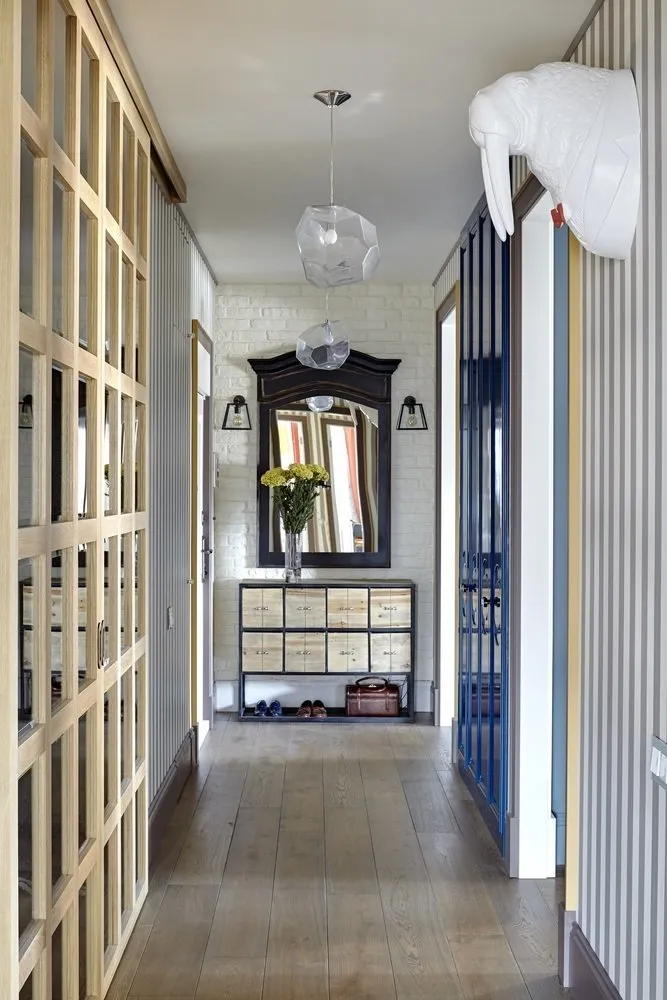
Video on the Topic:
Need a renovation specialist?
Find verified professionals for any repair or construction job. Post your request and get offers from local experts.
You may also like
More articles:
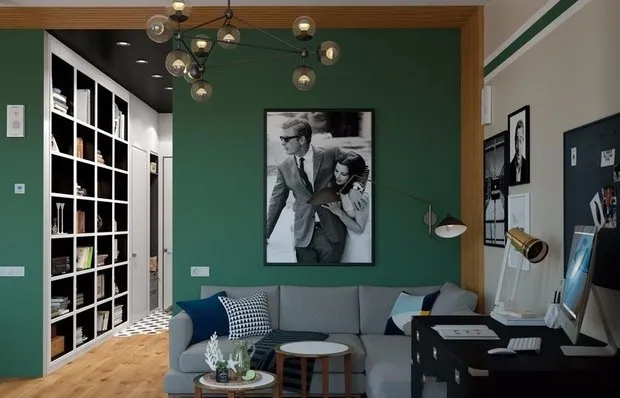 Color in Interior Design: How Tones Affect Mood
Color in Interior Design: How Tones Affect Mood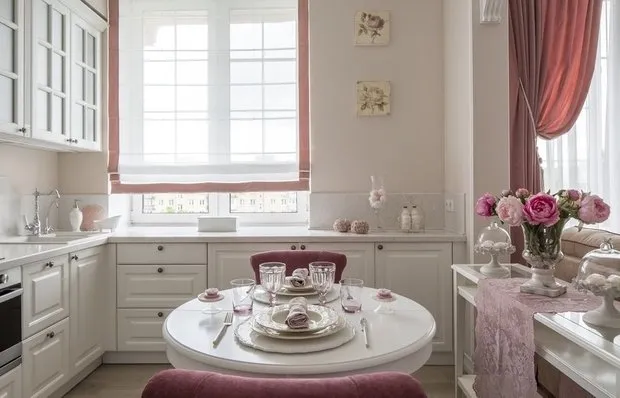 Kitchen Design 14 Square Meters with Photos
Kitchen Design 14 Square Meters with Photos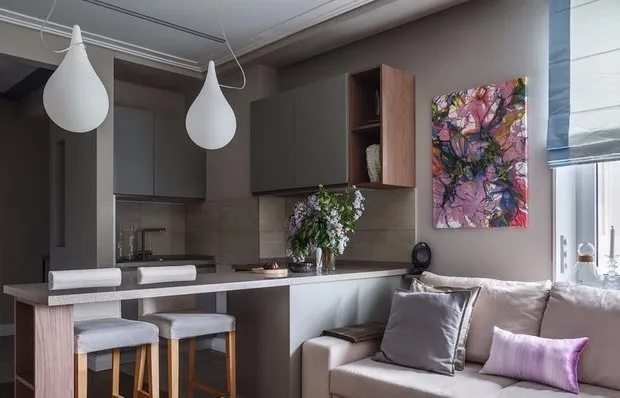 Fresco on Wall in Kitchen Interior with Photo
Fresco on Wall in Kitchen Interior with Photo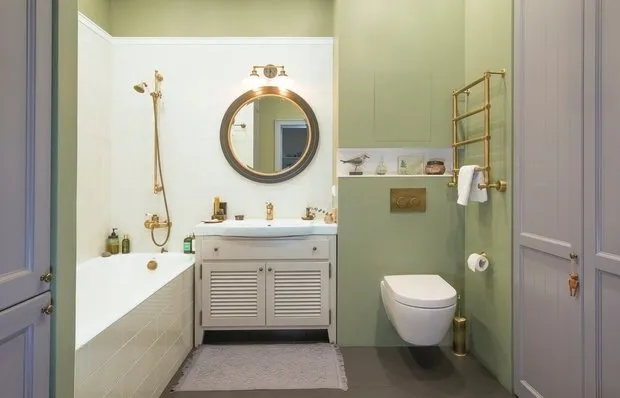 Toilet with Installation: Photos in Interior
Toilet with Installation: Photos in Interior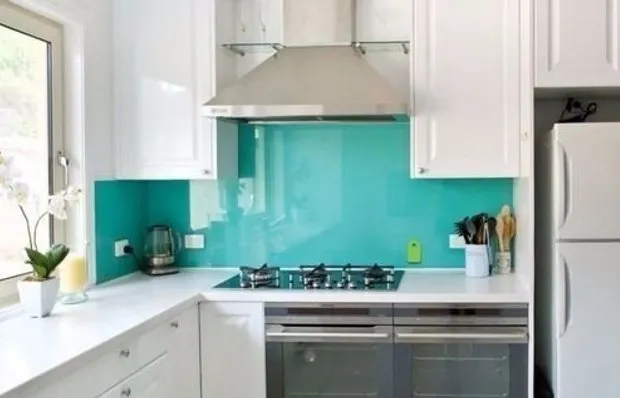 Kitchen Design 10 Square Meters
Kitchen Design 10 Square Meters How to Arrange a Kitchen if There Is a Small Child in the House
How to Arrange a Kitchen if There Is a Small Child in the House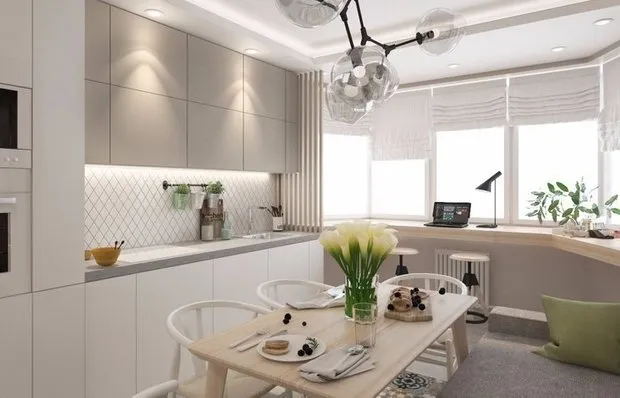 Kitchen Design in a Private House with Photos
Kitchen Design in a Private House with Photos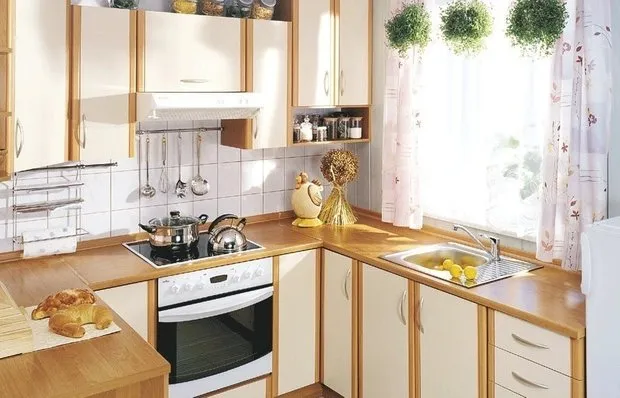 Kitchen Counter-Window Sill with Photos
Kitchen Counter-Window Sill with Photos